


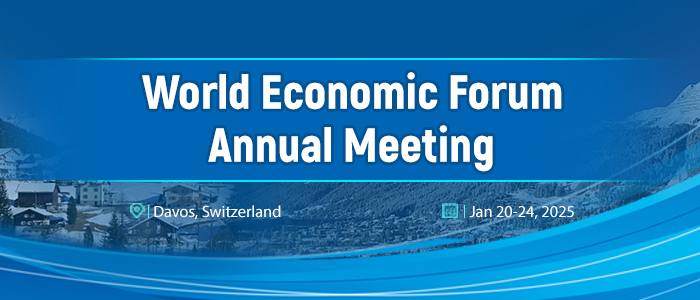
The chairman of the German Chamber of Commerce in East China has given a confident take on China's economic outlook.
Speaking at the 2025 Summer Davos forum in Tianjin, Clas Neumann noted that China's economy remains strong, contributing one-third of global growth and benefiting the international community. He said German companies have continued to increase their investment in China, with a record high reached last year.
In a speech he delivered at this year's World Economic Forum Annual Meeting in Davos last week, Vice-Premier Ding Xuexiang, also a member of the Standing Committee of the Political Bureau of the Communist Party of China Central Committee, reiterated China's support for economic globalization, and its resolve to continue to uphold multilateralism. Such a stance, as well as the promise that "China's door of opening up will not be closed and will only open even wider" has injected certainty to boost the stability of the world at a time when the protectionist policies being adopted by the world's largest economy are expected to bring more uncertainties to trade, technology and the geopolitical landscape worldwide.
That's where China and Europe have common ground to strengthen their relations. It is the responsibility they have shared to uphold the global free trade system and other forms of multilateral cooperation that has continuously injected vitality into China-Europe ties.
Ding's visit to Switzerland and the Netherlands from Jan 19 to 24, therefore, marks a good start for the mutually beneficial relations between China and Europe this year.
During Ding's visit to Switzerland, the two sides agreed to further promote their innovative strategic partnership based on the same position they share on upholding free trade and opposing protectionism. Swiss President Karin Keller-Sutter underscored that the success story of the China-Switzerland free trade agreement shows that mutual benefit can be achieved through openness and cooperation.
Since it came into effect in 2013, the Sino-Swiss FTA has played a positive role in promoting bilateral trade, and enterprises in both countries have greatly benefited from it. China is now Switzerland's third-largest trading partner, while Switzerland is China's sixth-largest in Europe.
Likewise, during Ding's visit to the Netherlands, the two sides agreed to uphold open cooperation and promote an open world economy, while expressing their firm support for multilateralism. Dutch Prime Minister Dick Schoof, during his talks with Ding, noted that the Netherlands is ready to work with China to safeguard free trade and promote openness and cooperation.
Bilateral relations hit a snag recently following the announcement that the Netherlands would impose stricter export controls on certain semiconductor manufacturing equipment and software. The move, which has unreasonably expanded the concept of national security, is believed to have been initiated under pressure from Washington to crack down on China's high-tech industry. Given the semiconductor industry is highly globalized, any abusing of export controls poses a serious threat to the stability of global industry and supply chains.
That is why during his talks with his hosts, Ding expressed the hope that "the Dutch side will continue to provide a fair, equitable and nondiscriminatory business environment for Chinese companies … and maintain stable and unimpeded global industry and supply chains". Given that both countries are beneficiaries and supporters of an open world economy, any move counter to the principle of free trade will serve neither side's interests.
This year marks the 50th anniversary of the establishment of diplomatic relations between China and the European Union, and Ding expressed the willingness of China to strengthen dialogue and cooperation with the EU to promote the sound and stable development of China-EU relations.
It is encouraging that in face of a complex and volatile world, China and the EU remain committed to dialogue and consultation to build consensus and overcome differences.
European Commission President Ursula von der Leyen, during her speech in Davos, said: "I believe that we must engage constructively with China — to find solutions in our mutual interest." She also saw the 50th anniversary as "an opportunity to engage and deepen our relationship with China, and where possible, even to expand our trade and investment ties".
Indeed, China and the EU, as each other's important trading partners with their economies highly intertwined, have far more shared interests than differences. For them to remain trustworthy and reliable cooperation partners on their paths to development will not only serve their own interests, but also contribute to the stability and prosperity of the world.
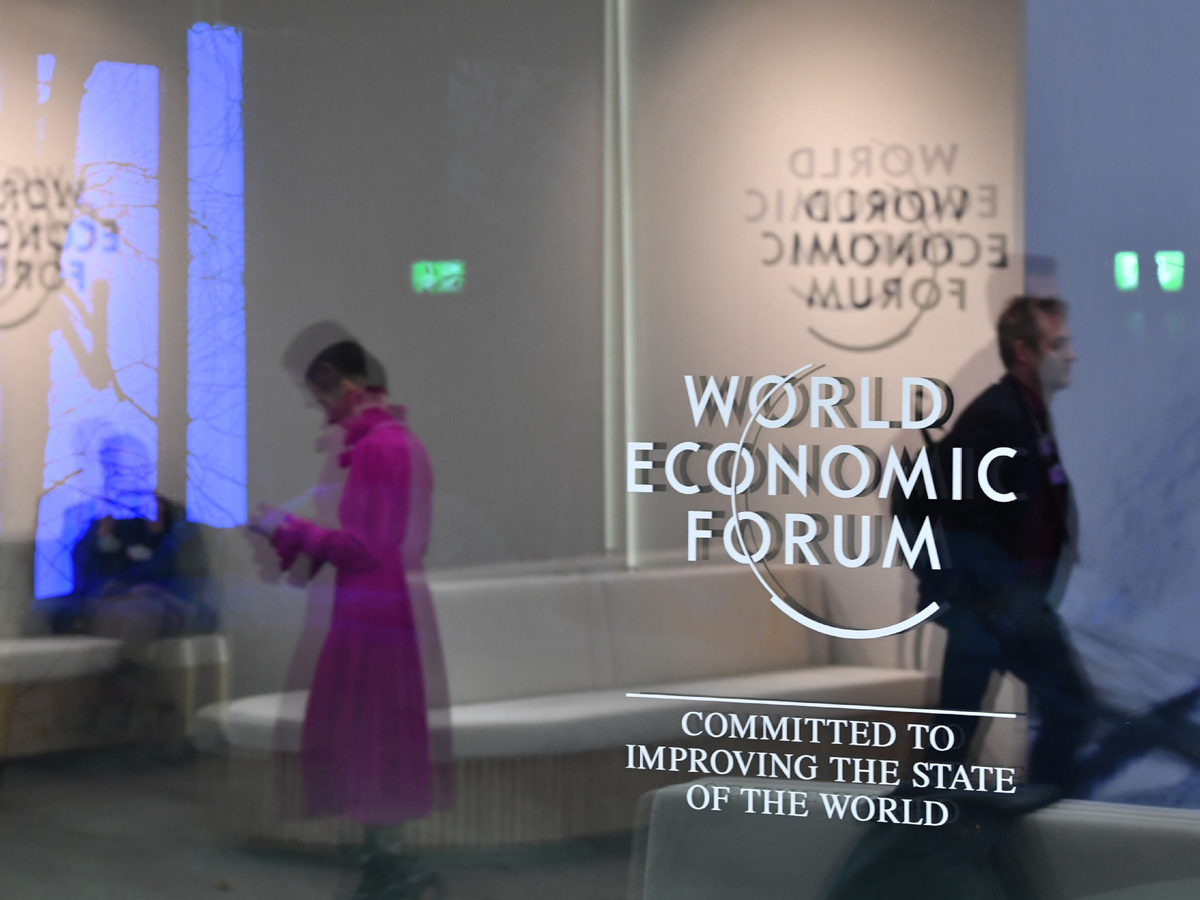
DAVOS, Switzerland -- The World Economic Forum (WEF) concluded its annual meeting here on Friday, calling for increased cooperation in the face of global challenges and uncertainty.
Amid ongoing conflicts, economic instability, and rapid technological advancements, the WEF Annual Meeting 2025 served as a crucial platform for fostering dialogue, encouraging collaboration, and driving sustainable solutions to shared global challenges.
In his closing remarks, WEF President Borge Brende said, "We all realize during this week that we came together in Davos, at the time of immense consequence and uncertainty. Political, geopolitical, and macroeconomic landscape - all are shifting under our feet."
He emphasized that critical political priorities such as driving economic growth, reducing carbon emissions, and finding ways to end conflicts require urgent attention. "All of these challenges cannot wait, and the only way to make progress on these issues is by working together," he added.
Brende further noted that leaders from around the world, representing both the public and private sectors, had gathered to demonstrate how collaboration can be achieved. Even though nations compete, there are areas where interests overlap. In these areas, "we really need to strike and find deals to make the world a better place."
During the Economic Outlook session, International Monetary Fund (IMF) Managing Director Kristalina Georgieva highlighted that the evolving geopolitical landscape will reshape trade and economic relations. She said, "I think that there is no way we can wipe out collaboration from the future of humanity."
Nearly 3,000 participants from various regions and industries convened in Davos to address key global and regional challenges. They include responding to geopolitical shocks, stimulating growth to improve living standards, and advancing a just and inclusive energy transition.
The annual meeting, under the theme "Collaboration for the Intelligent Age", focused on five pivotal areas: reimagining growth, industries in the intelligent age, investing in people, safeguarding the planet, and rebuilding trust.
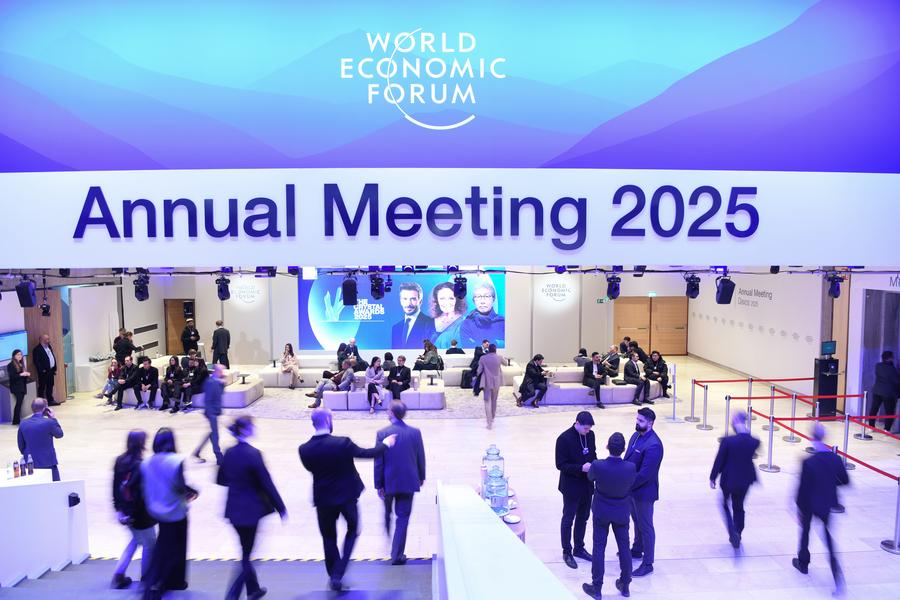
The World Economic Forum concluded its annual meeting on Friday. The meeting, under the theme "Collaboration for the Intelligent Age," focused on five pivotal areas: reimagining growth, industries in the intelligent age, investing in people, safeguarding the planet, and rebuilding trust. Some topics have frequently appeared in media reports and meeting discussions, becoming the keys to understanding the current development. Here's some keywords you need to know.
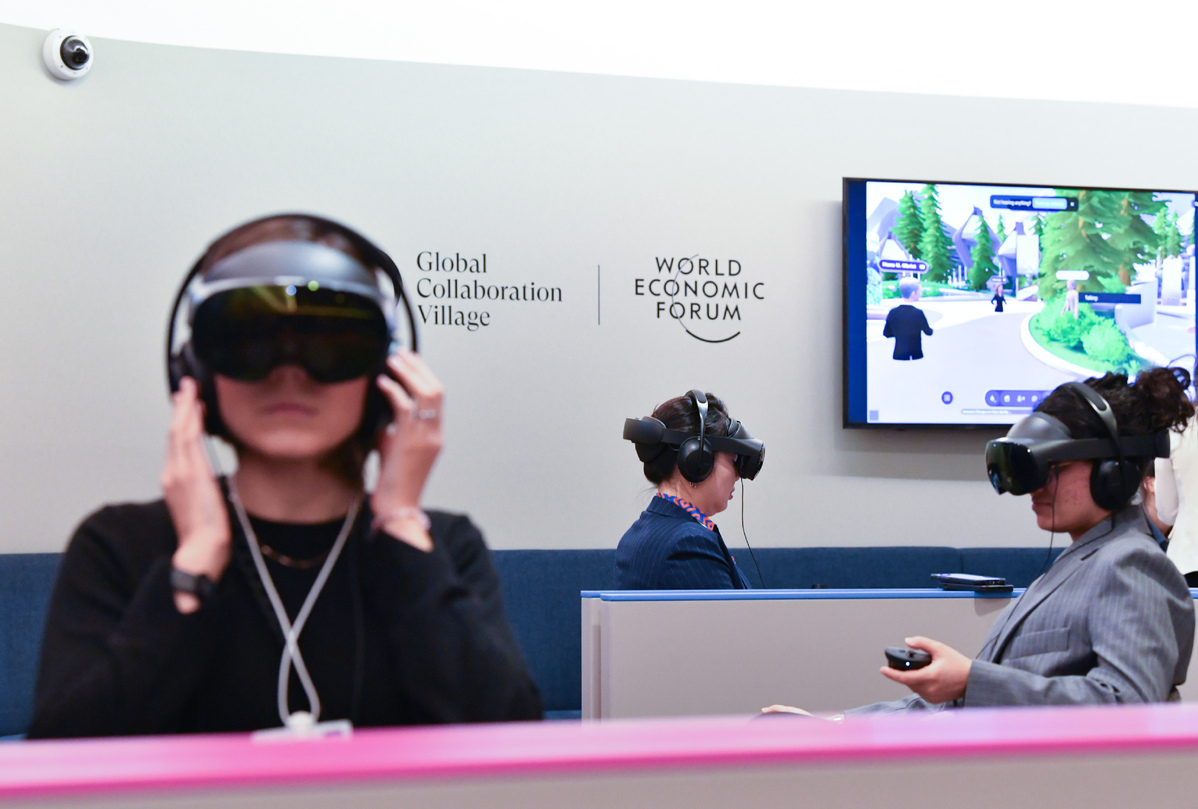
AI agents
AI agents, widely used in sectors such as healthcare, education, and finance, are autonomous systems capable of sensing, learning, and acting upon their environments.
The World Economic Forum published a white paper titled "Navigating the AI Frontier: A Primer on the Evolution and Impact of AI Agents" in December 2024, highlighting how AI agents can enhance efficiency.

Digital trust
Digital trust is the expectation by individuals that digital technologies and services – and the organizations providing them – will protect all stakeholders' interests and uphold societal expectations and values.
During this year's annual meeting, leadership's commitment to cybersecurity, privacy, transparency, redressability, auditability, fairness, interoperability, and safety became a hot topic.
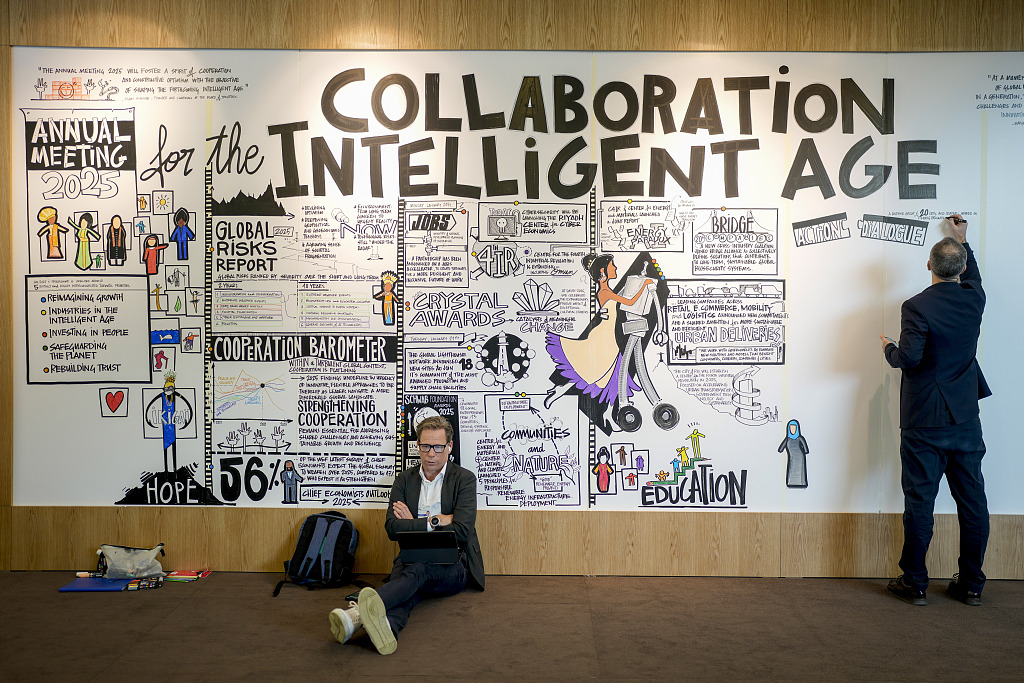
The intelligent age:
Rapid advancements in AI, quantum computing, and blockchain have shaped a new era. This requires us to develop both technological intelligence and environmental, social, and geopolitical intelligence.
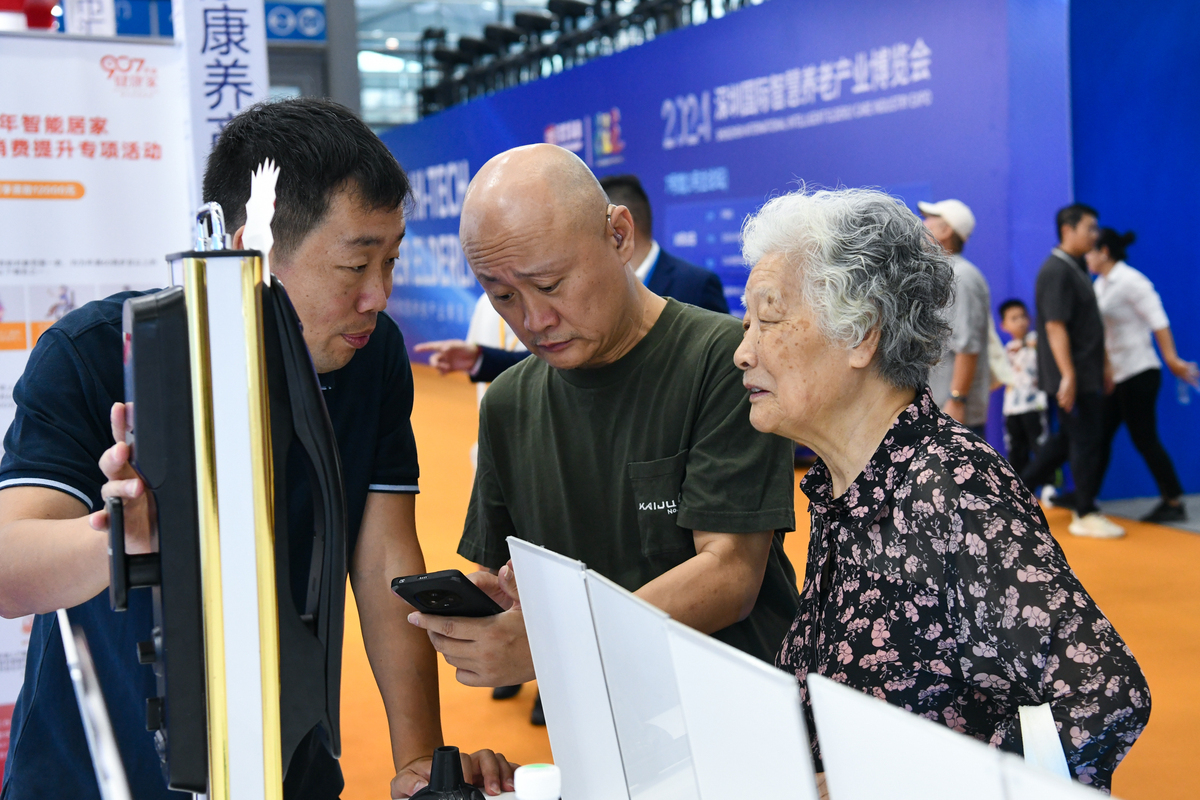
Super-ageing societies
The World Health Organization defines "super-ageing" societies as countries with more than 20 percent of their population over the age of 65 years old.
According to the World Economic Forum's Global Risks Report, some countries are experiencing rapidly aging populations, creating economic and labor market challenges.

Advanced nuclear technologies
These technologies, from fusion to small modular reactors, are seen as key to the energy transition.
Business leaders of Chinese new energy companies, including CATL, Envision, and Trina Solar, called for a green transition of the world economy, emphasizing the diffusion of technology and supply chains will not only contribute to combating climate change but also bring inclusive growth.
They made the remarks at the annual meeting of the World Economic Forum in Davos, Switzerland, this week, which was overshadowed by rising protectionism and the retreat of the United States from the Paris Agreement again.
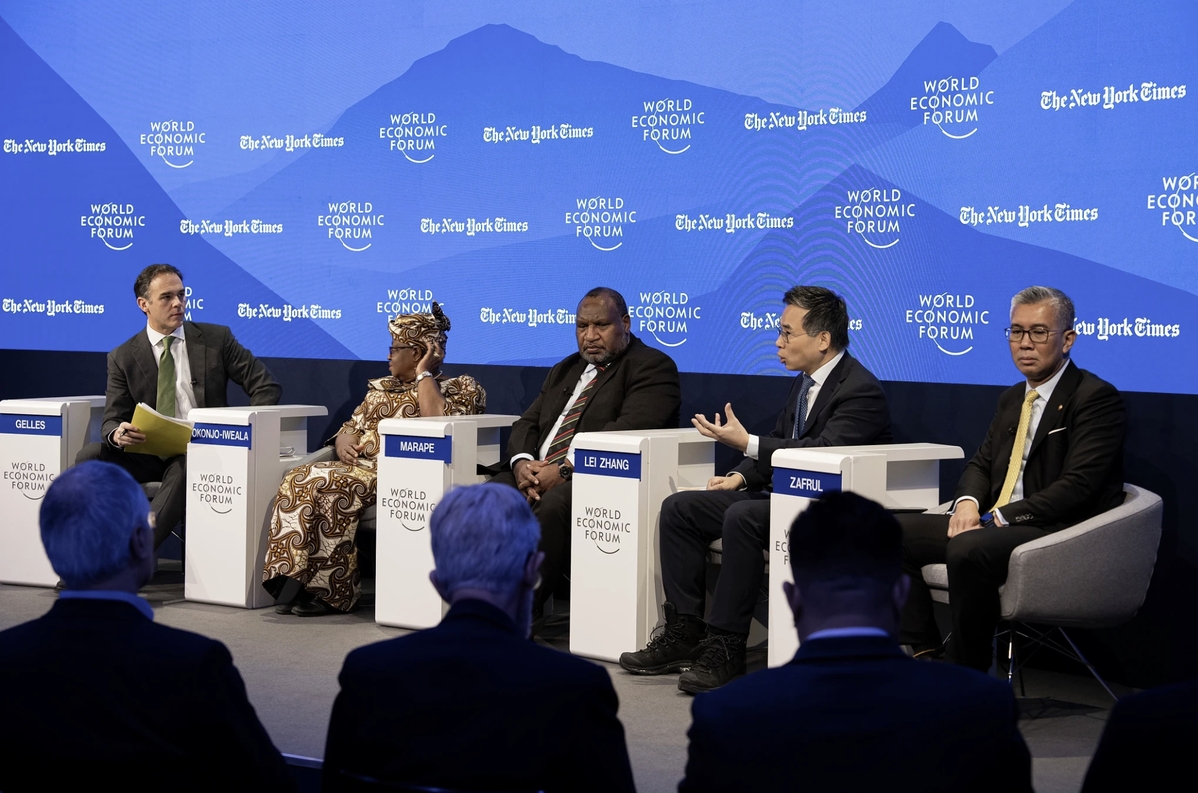
At the panel "Squaring the Climate-Trade Circle", Zhang Lei, CEO of Envision, one of China's leading wind turbine manufacturers, said, "Trade is enabling energy transition, and at the same time the transition is also redefining global trade and supply chains. This reorganization is creating so many opportunities, particularly for developing countries. It's going to be a path to new prosperity."
Zhang said in the next decade people probably will see the emergence of many new trading hubs, with places like Morocco producing green ammonia, Brazil becoming a center for sustainable aviation fuel, and Australia, which now mainly exports iron ore, leveraging its renewable energy resources to produce hydrogen, and then make green steel.
"This new trade will create new trading hubs, behind which will be new industrial clusters and new business ecosystems," he said, explaining that countries like Papua New Guinea with abundant biogenic carbon could become an ideal place to build net-zero parks for sustainable green methanol, a promising shipping fuel. It can be sent to Singapore, the global logistics hub, to decarbonize global maritime trade.
'Just, inclusive'
"We strongly believe this transition will be a just, inclusive transition, and an opportunity for the locals in the developing countries," Zhang concluded.
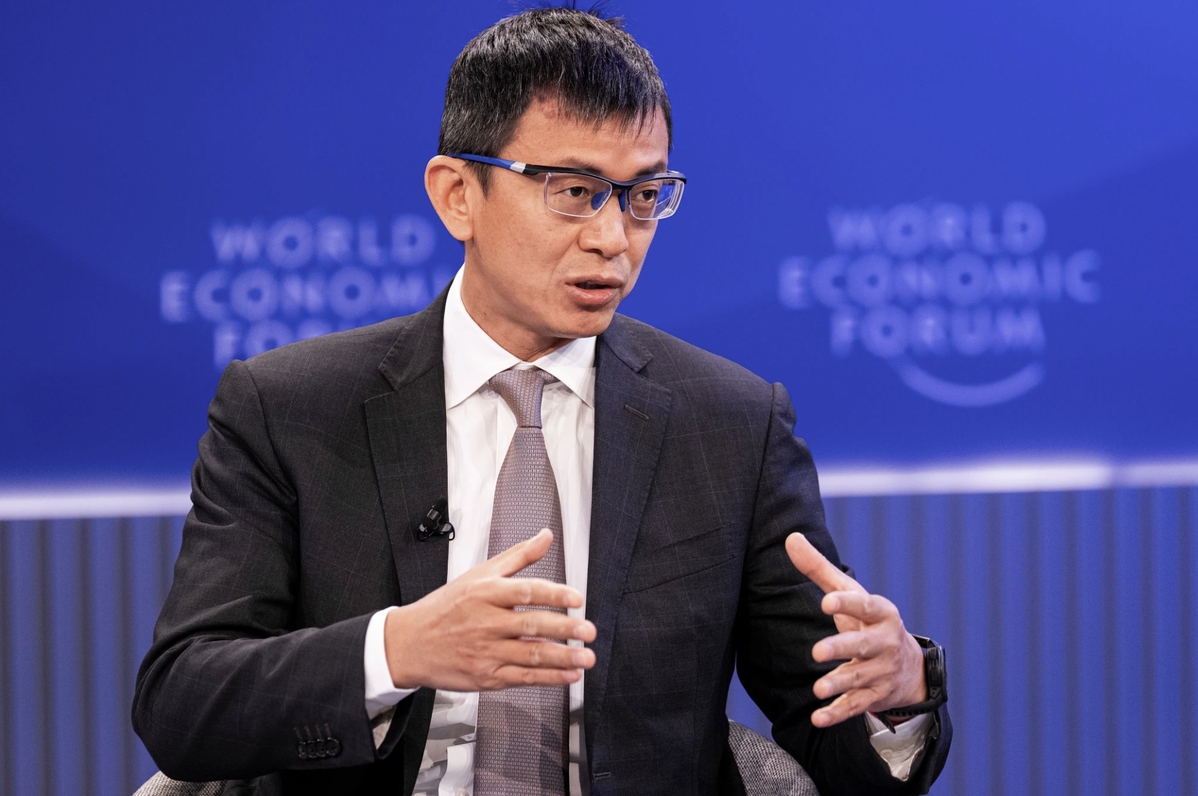
In the roundtable "Getting EV Supply Chain Right", Pan Jian, co-chairman of CATL, a leading battery manufacturer, responded to the misleading narrative about China's threat because of its leading position in electric vehicle supply chains.
"It is not true because it overlooks one important aspect of the story," said Pan. "If you look at the concentration of the production capacity in China, yes, it is very high along the supply chain. However, if you look at the end market, China also accounts for 70 percent of the overall EV market. We should look at the issue from both supply and demand perspectives," he said.
Citing China's EV penetration rate, which surpassed 50 percent last year, meaning that more EVs were sold in China than gasoline cars, Pan said he expects the penetration rate to continue to grow to 60 percent this year.
"With the spread of EVs in different markets, we believe the production of the supply chain will also spread to different parts of the world," he added.
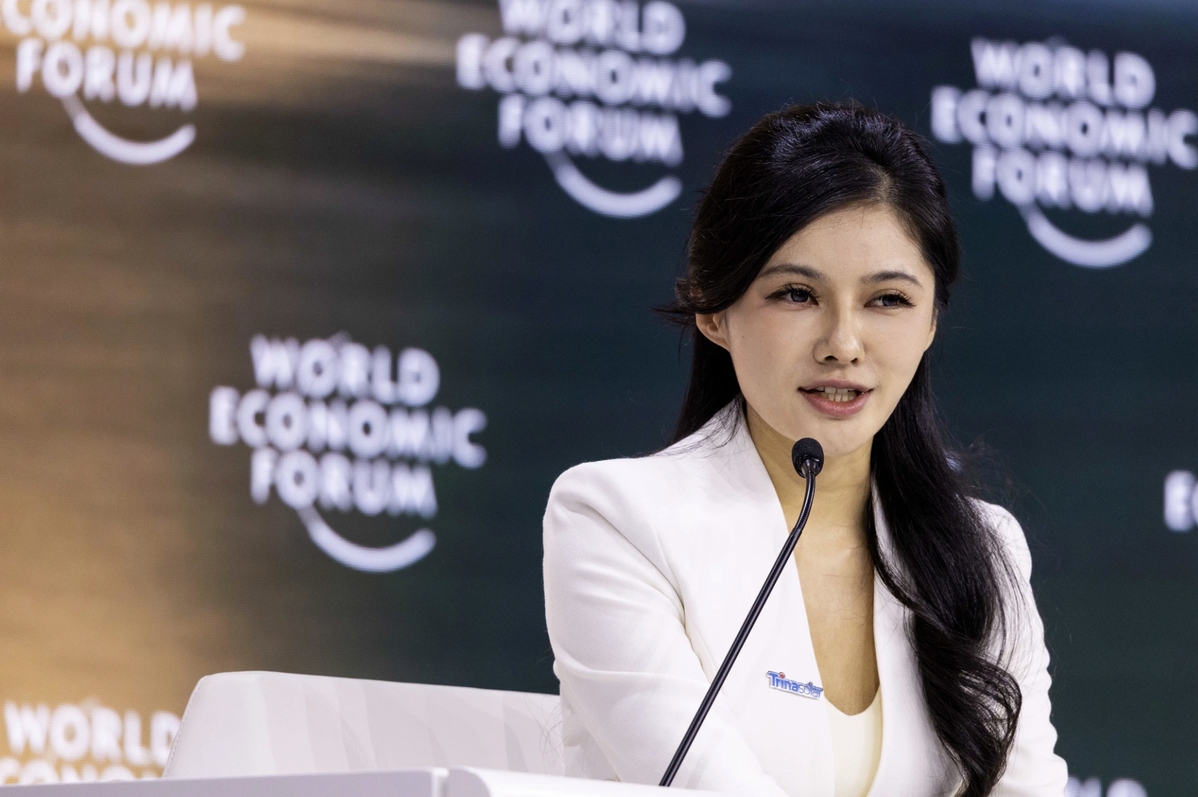
In a meeting on "State of Climate and Nature", Gao Haichun, co-chair of Trina Solar, a Chinese photovoltaic company, shared her vision for the future development of renewable energy.
"What we need today is not only invest in solar or wind energy, but also invest in grids. We need more intelligent, decentralized and stable electricity grids for the generated renewable energy to be consumed," she said, adding examples of decentralized solar power helping businesses and families in difficult situations.
"The green transition is not only a technology story or an economic story. It's also about human dignity. It's also security. It's also an opportunity," she said.
xingyi@chinadaily.com.cn
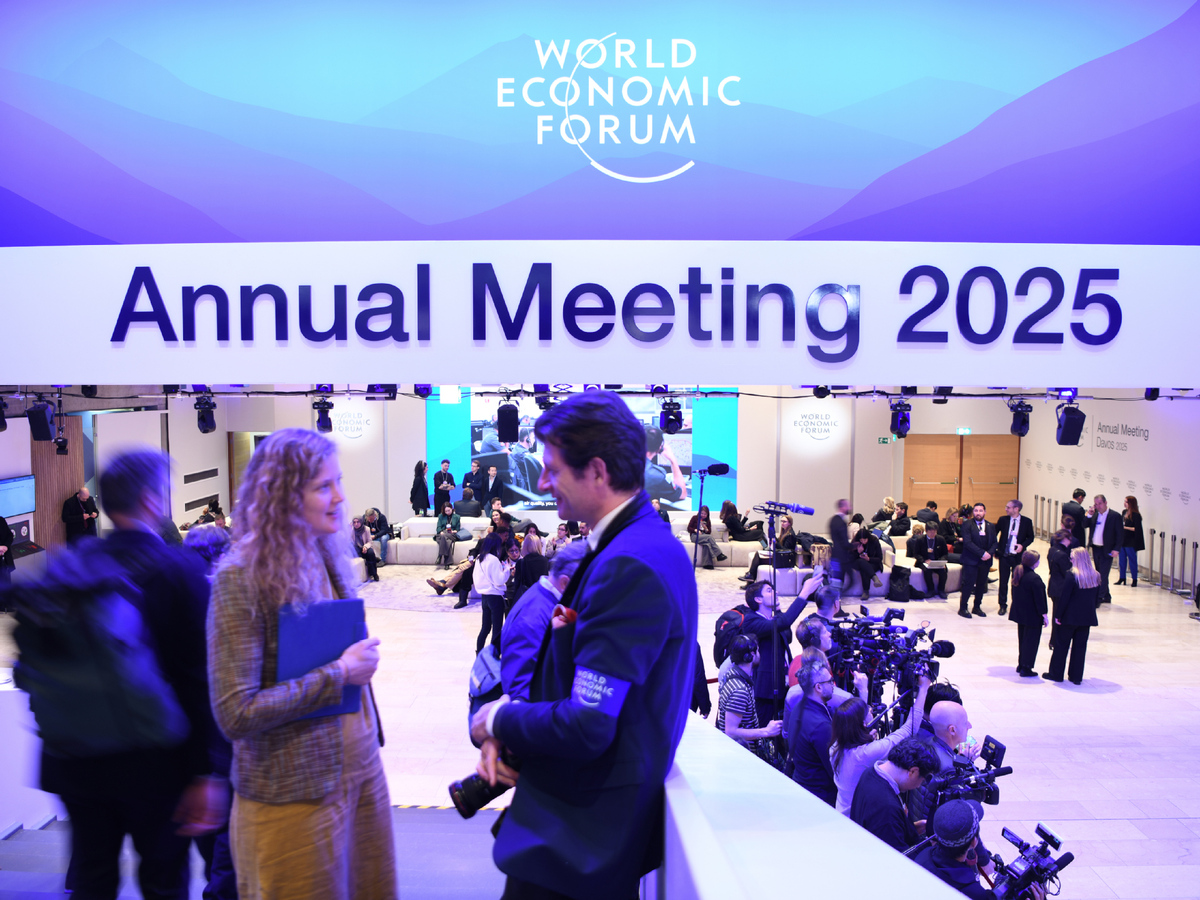
Scientific and technological innovation and artificial intelligence have become new growth points in the world economy. To that effect, promoting intelligence-related industries is one of the focal points of discussions at the 2025 World Economic Forum Annual Meeting.
On the theme, "Collaboration for the Intelligent Age", the meeting has been held from Jan 20 to 24 in Davos, Switzerland with nearly 3,000 leaders from governments, businesses and academia across 130 countries and regions convening at the meeting.
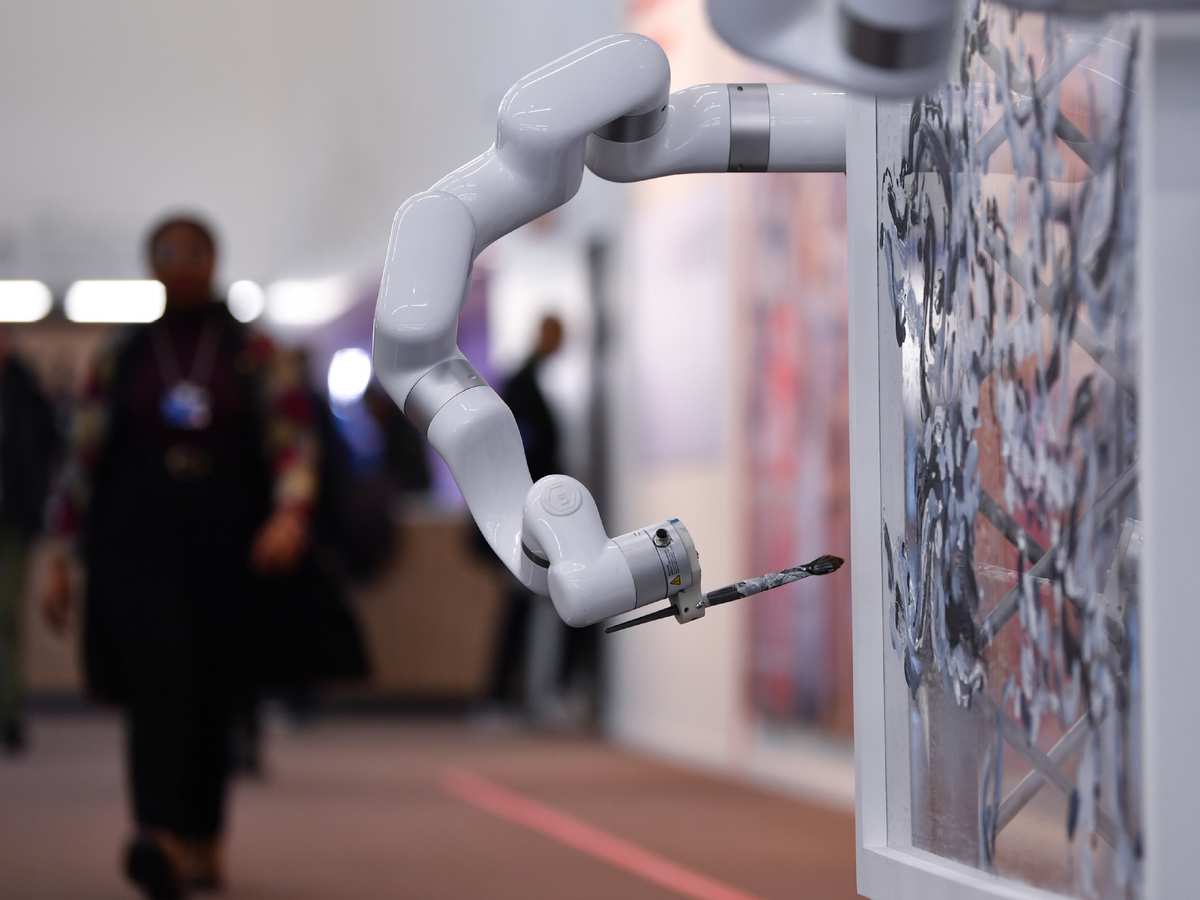
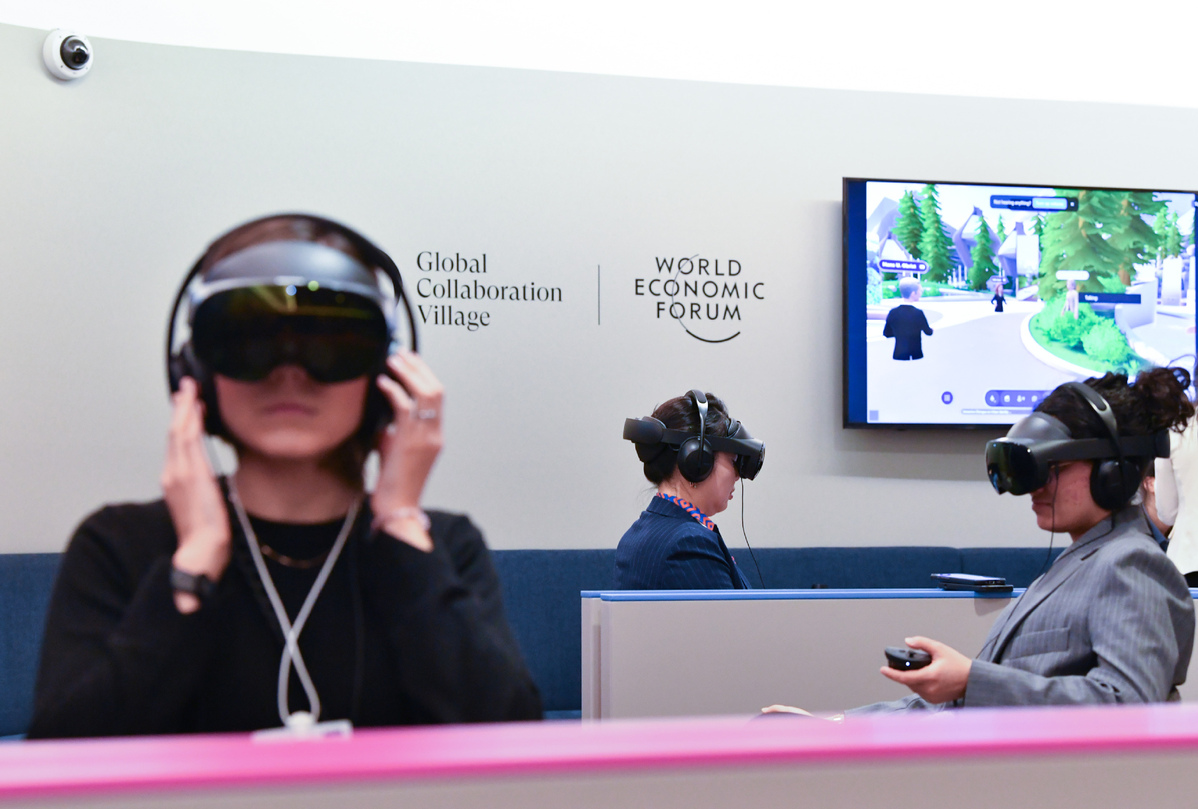


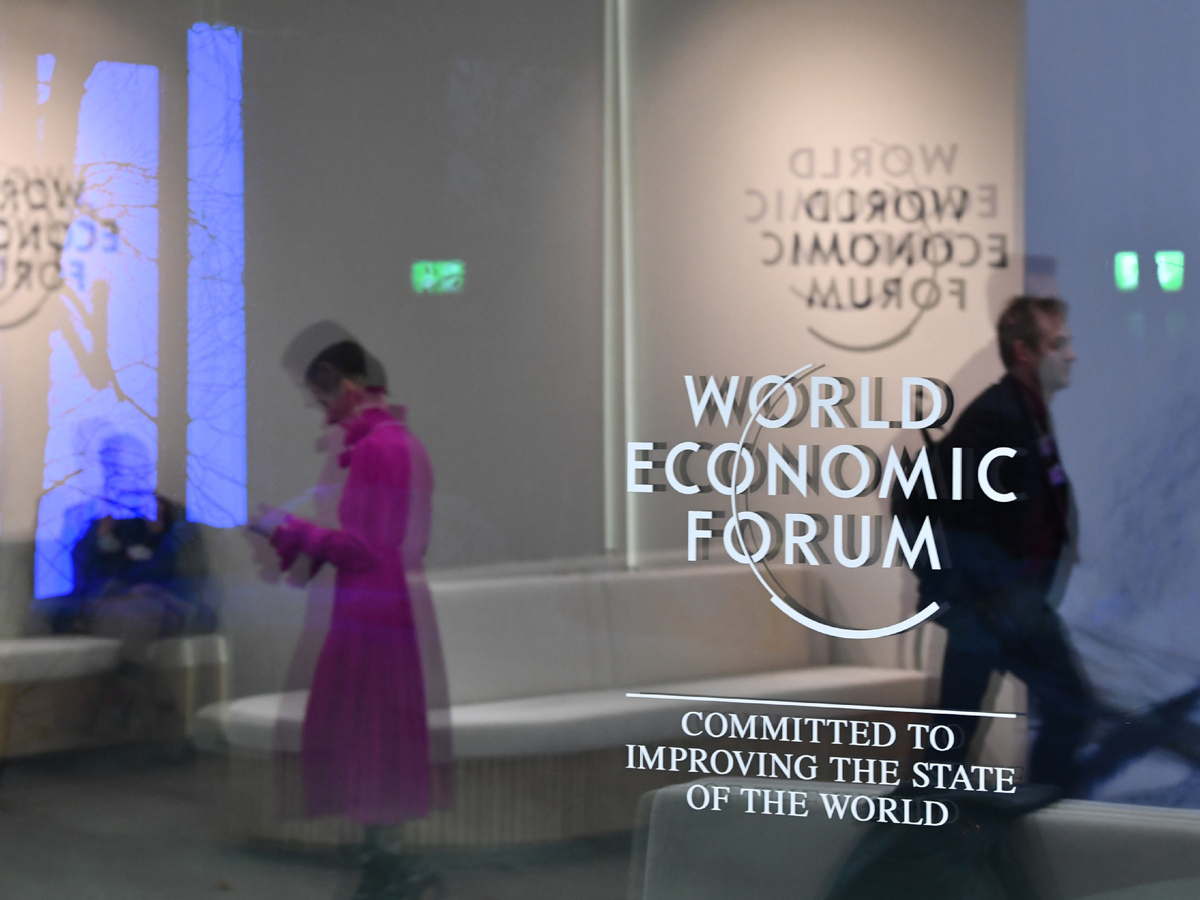
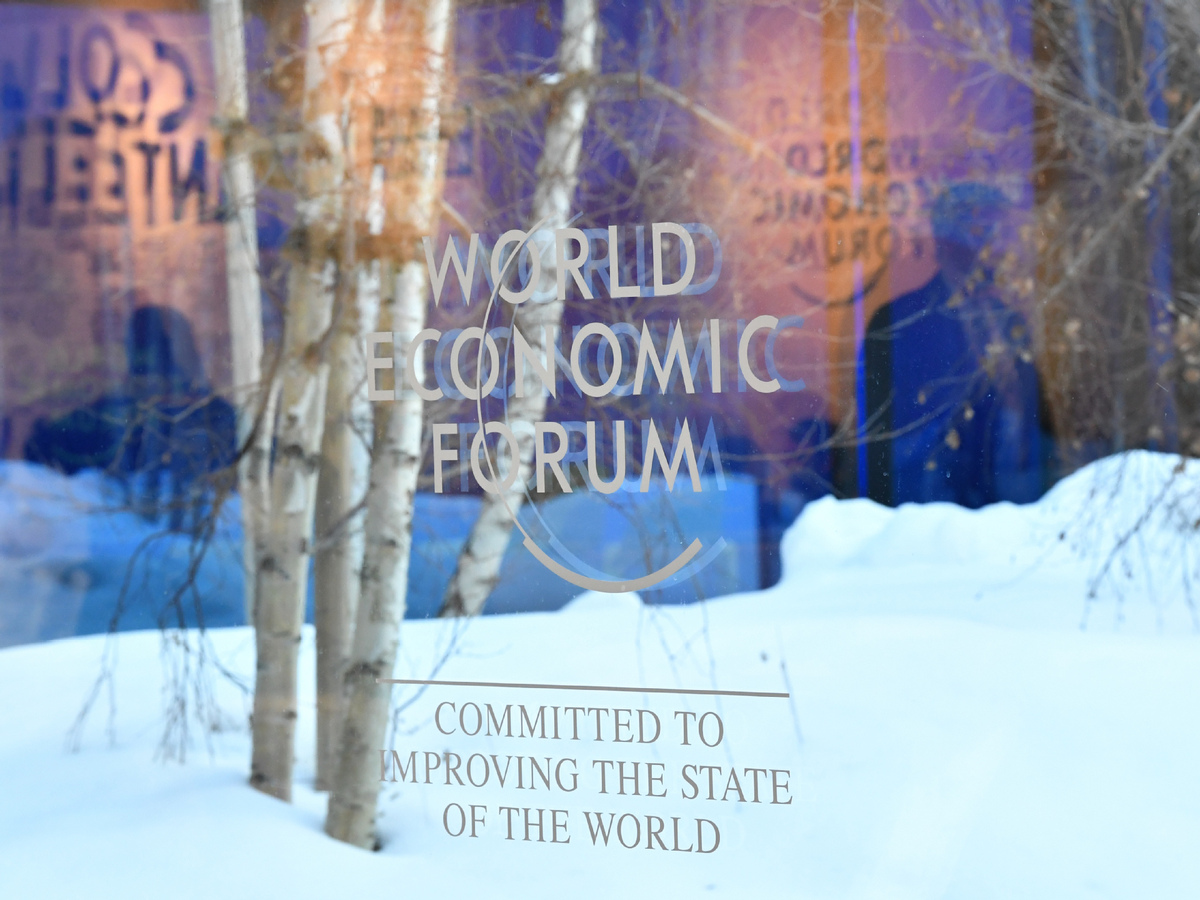
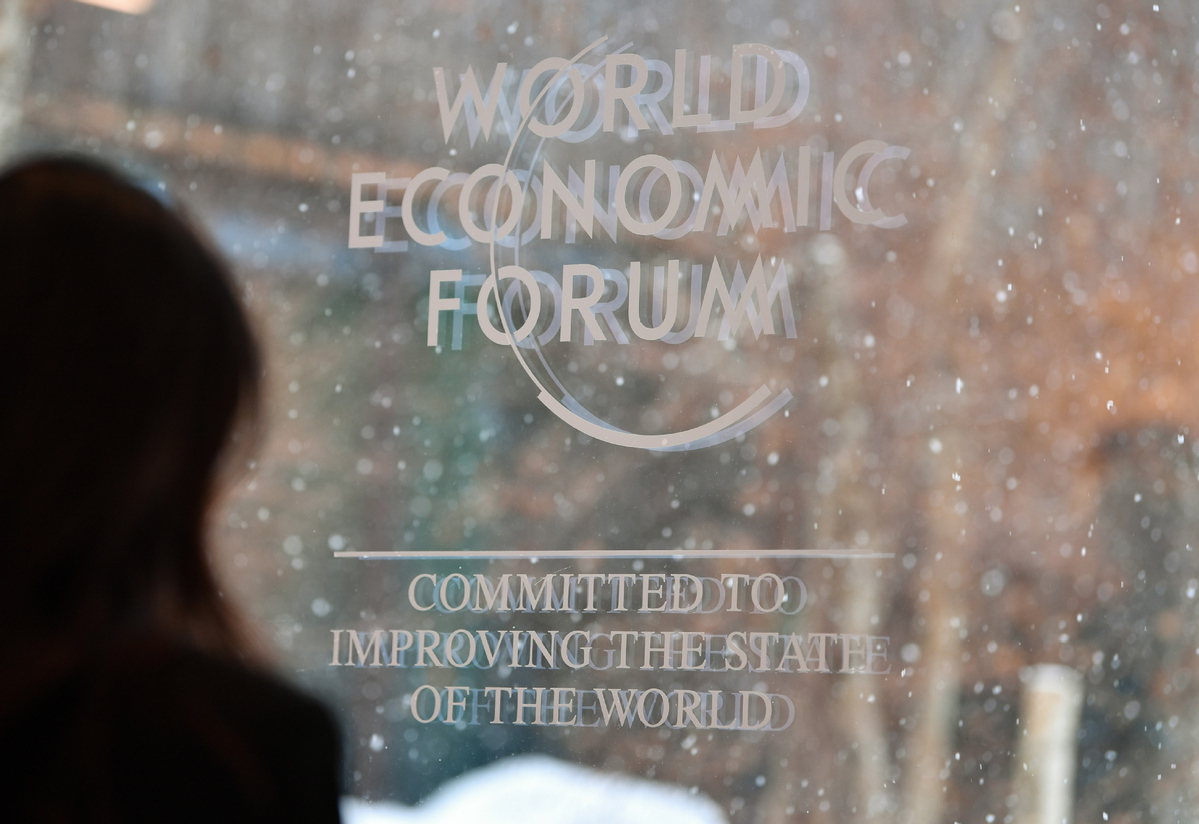
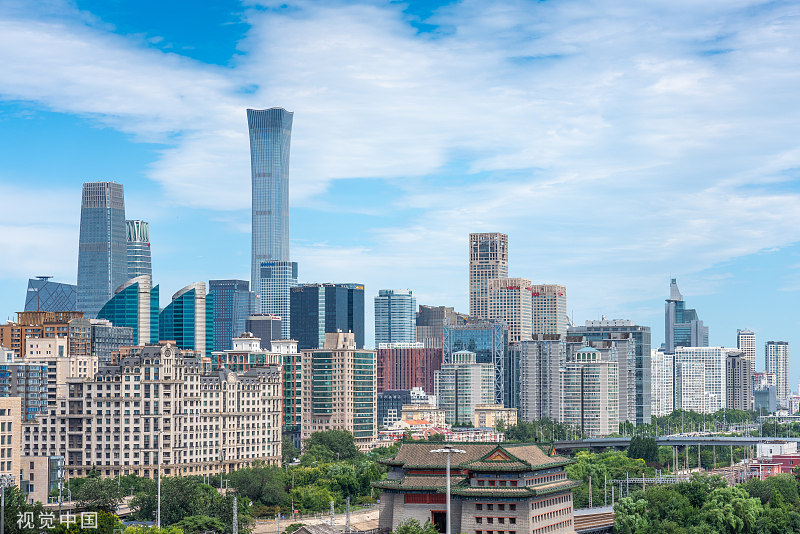
DAVOS, Switzerland - Domestic market consumption, manufacturing development, and green transition are poised to become key drivers of China's sustained economic growth in the coming years, said a former senior official of the International Monetary Fund (IMF).
Chinese economy is undergoing a structural transformation, with its growth sources and patterns shifting, Zhu Min, former deputy managing director of the IMF, told Xinhua during the World Economic Forum (WEF) Annual Meeting, which began on Monday.
Amid uncertainties in international trade, Zhu underscored the strategic significance of boosting domestic market consumption to sustain economic growth. While goods consumption already accounts for a substantial share of China's economy, sectors such as healthcare, education, entertainment, tourism, and sports services hold considerable potential for expansion, he added.
China's manufacturing sector remains a cornerstone of its economic competitiveness, Zhu emphasized. "In the first 20 years of the past 40 years, we made manufacturing the cheapest, in the second 20 years we made it both cheap and good, and in the next 20 years we will make manufacturing cheap, good and high-tech, so that we can maintain our core competitiveness."
China has made rapid advancements in sectors such as electric vehicles, demonstrating its commitment to green transition and climate change mitigation. Zhu highlighted the significant potential for further green development, noting that this transition aligns closely with the development of China's manufacturing sector and serves as a critical driver of economic growth.
Talking about the risks and challenges of the global economy, Zhu said that the global economy is in a sustained low growth phase, and the current growth rate is 0.5 to 0.6 percentage points lower than the global average growth rate in the past 20 years.
The fiscal deficits of many economies such as the United States and the United Kingdom are very high and fiscal unsustainable, posing risks to the stability of the global financial system, according to Zhu.
"2025 will be a year of great uncertainty," he said. The impact of the new US government's policies on the global economy remains to be further observed, he said, adding that it is likely to increase the world's uncertainty and economic fragmentation.
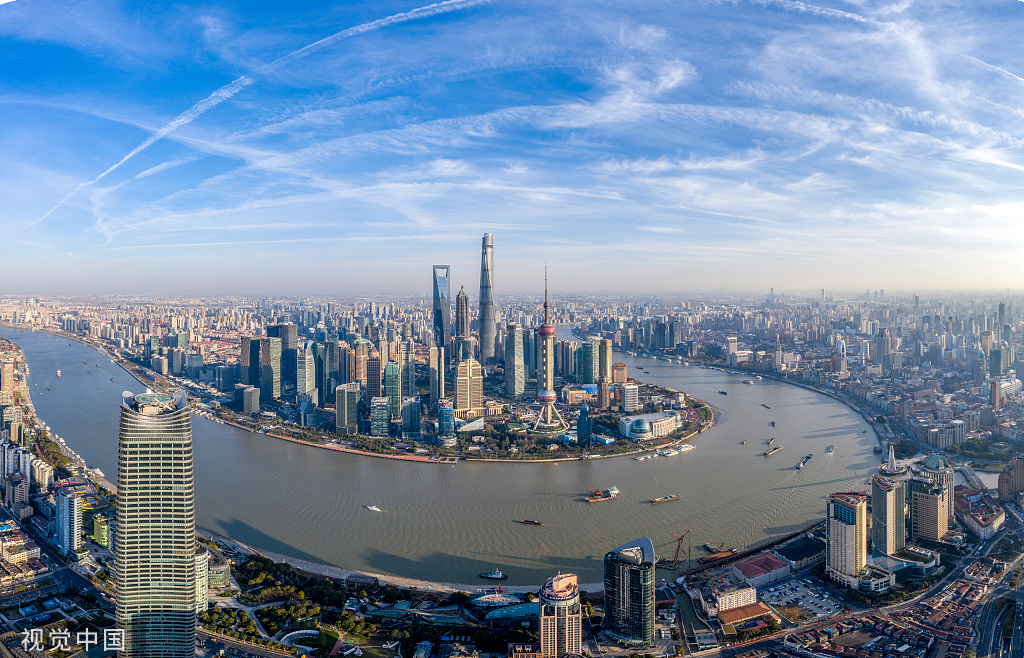
Business leaders of major multinationals lauded Shanghai's business environment and opening-up measures, casting a vote of confidence in China's economic growth during the World Economic Forum Annual Meeting 2025 this week in Davos, Switzerland.
They made the comments while attending a reception on Tuesday hosted by Shanghai Mayor Gong Zheng, who has led a delegation to Davos and discussed a wide range of topics with many business leaders, including the further development of Shanghai's business environment.
In his speech at the "Shanghai Night" event, Gong said the city's attractiveness as a global investment hub, an innovation highland and a prime destination for entrepreneurship continues to grow.
Gong said Shanghai will accelerate the construction of its "five centers" — an international economic center, financial center, trade center, shipping center, and science and technology innovation center — in order to promote stable economic growth, foster new quality productive forces, deepen high-level reforms and opening-up, and create a world-class business environment.
Shanghai will continue to provide greater opportunities for global enterprises to invest and operate in the city, he added.
Severin Schwan, chairman of the board of directors of the Swiss healthcare company Roche Group, said: "I think Shanghai is really positioned to be one of the major innovation hubs in the life-science industry. I have no doubt. Because it has always been the door to the West. It has a tradition of being a host for the business world, for innovation, for technologies.
"So I'm very optimistic about the future of Shanghai," Schwan said.
Currently, Schwan also serves as the chair of the International Business Leaders' Advisory Council for the Mayor of Shanghai, which convenes leading multinational leaders every fall to give advice to the city. The initiative was set up in 1989 by then Shanghai mayor Zhu Rongji.
Stefan Paul, CEO of global logistics giant Kuehne+Nagel International AG, who has been a member of the advisory council since 2023, said that he appreciates the strong links the city has with the business community.
"In all honesty, I've never experienced it in any other city in the world — how much engaged the mayor and his entire team are, to attract foreign investments and develop Shanghai into a multimodal hub," Paul said, adding, "It's really second to none from my perspective."
Paul said that Shanghai is essential for the company's sea freight service, which opened its Shanghai office in 1986 and was among the first foreign logistics companies to come to do business in China after the nation adopted the reform and opening-up policy.
Last year, Shanghai Port became the world's first to have handled 50 million 20-foot equivalent unit containers in annual throughput.
Saying that the milestone was "very impressive", Paul added, "We support open trade and we support as well our customers moving their cargo from Asia, from China, to the rest of the world and vice versa."
Fabrice Megarbane, chief global growth officer of French cosmetics company L'Oreal Group, who spent many years working in Shanghai, praised the innovation and openness of the city, which has launched many measures to implement China's opening-up policies that "allow companies to accelerate investment and better build their business ecosystem".
Megarbane highlighted the importance of innovation in the beauty industry, adding that the high-quality development of China has had a positive impact on the industry.
"We've been launching a 'Big Bang' program to actually work with startups to work out innovative solutions," he said. "Innovation is the name of the game, and Shanghai is the flagship of this innovation in China. So we are very much determined to continue our investment and to grow in the market."
"China has also become a very big market, so the contribution of growth of this market to the overall beauty market worldwide would be significant. This is why the growth story of China is still ahead," he said.
At a panel discussion on tariffs during the World Economic Forum in Davos, EU Commissioner Valdis Dombrovskis said that the United States’problem is not poverty but income inequality. He noted that the US is already one of the fastest-growing advanced economies, and many of its challenges stem from excessive income inequality.
At the World Economic Forum's annual meeting 2025 in Davos, Switzerland, China Daily spoke exclusively with Joe Ngai, chairman of McKinsey & Co in Greater China. He said that Chinese companies should think about how to truly become a sophisticated global citizen, contributing to economic development worldwide, and bringing not only better products, but also a better life.
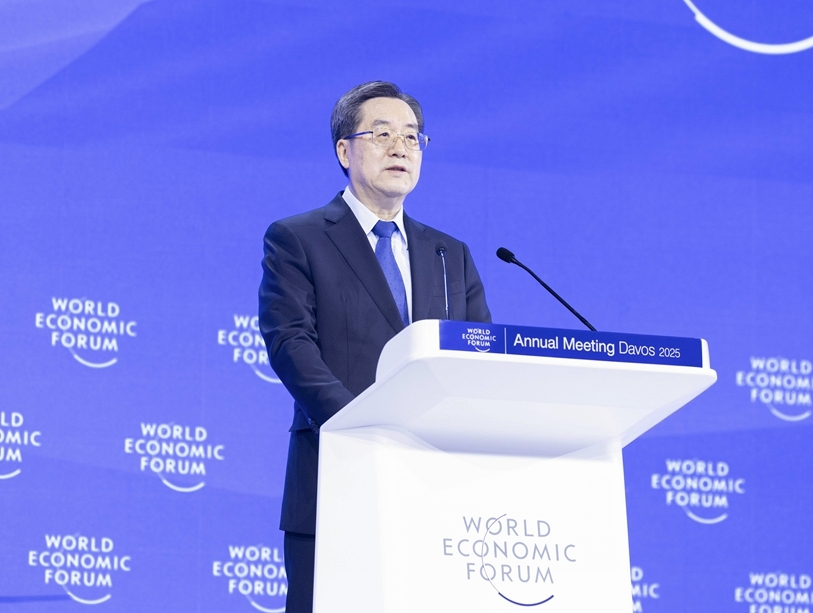
Vice-Premier Ding Xuexiang has warned of "unimaginable" consequences if the world becomes divided, and he emphasized the need for the international community to work together to oppose a Cold War mentality and zero-sum game, and build a more equitable international order.
"If the world becomes divided, it will be difficult for humanity to address common challenges together, and the world could relapse into confrontation and even wars, and no country could remain unaffected," Ding said on Tuesday during the World Economic Forum Annual Meeting 2025 in Davos, Switzerland.
Ding's appearance at the Davos event made him the first senior leader from China to address global concerns about the country's economic prospects and foreign policy priorities since US President Donald Trump assumed office for his nonconsecutive second term on Monday.
Ding told the attendees at the event that global governance is undergoing profound adjustments, with imminent tariff wars and trade wars, an ongoing tug-of-war between the forces for and against economic globalization, and intense rivalry between multilateralism and unilateralism.
He underlined the need for the international community to jointly promote universally beneficial and inclusive economic globalization, saying that "protectionism leads nowhere" and that a trade war "has no winners".
"In terms of foreign trade, we don't seek a trade surplus; we want to import more competitive quality products and services to promote balanced trade," he said.
Ding called for upholding and practicing true multilateralism, pursuing the vision of global governance featuring extensive consultation and joint contribution for shared benefit, and ensuring equal rights, opportunities and rules for all countries in international affairs.
This year's WEF annual meeting, running from Monday to Friday, is taking place under the theme "Collaboration for the Intelligent Age".
While highlighting the importance of leveraging artificial intelligence and emerging technologies to bridge global divides and drive inclusive, sustainable economic growth, Ding called for improving global governance on AI development to ensure that AI becomes an "Ali Baba's cave" filled with treasure, rather than a "Pandora's box" of uncontrollable risk.
He urged global cooperation under the United Nations to create strong governance frameworks to ensure that AI benefits humanity while avoiding risks.
The benefits of technology should be shared, he said. "We aim to bridge the tech gap and avoid allowing innovation to become a game for the rich countries alone."
China will collaborate with countries from around the world in AI development, especially when it comes to sharing new technologies with countries in the Global South, he added.
Regarding the Chinese economy, Ding underscored China's high-quality development, noting its 5 percent GDP growth last year despite external and structural challenges.
He said that the difficulties faced by the Chinese economy stem not only from the impact of the external environment, but also from the growing pains associated with its own economic structural adjustments. China will adopt more proactive policies to boost consumption and investment, and will promote scientific, technological and industrial innovation, he said.
China will further intensify macro policies, and adopt a more proactive fiscal policy and an appropriately accommodative monetary policy, Ding said, adding that the country will promote the sound and stable development of the capital market, stabilize the real estate market, and effectively prevent and defuse local government debt risks to effectively pursue higher-quality economic growth.
He also said that the country welcomes more foreign companies to invest and do business in China and share in its opportunities. "China's door of opening-up will not be closed and will only open even wider, and our business environment will only get better."
Ding reaffirmed China's unwavering commitment to peak its carbon emissions before 2030 and achieve carbon neutrality before 2060.
Fabrice Megarbane, chief global growth officer of the French cosmetics company L'Oreal Group, said that with its presence in China for almost 27 years, L'Oreal has witnessed the development and opening-up of China.
"We've been investing in China. We've been growing with China. And even recently we have increased our investment to our center in Suzhou. We've been introducing more brands to the market. We've also been extremely determined to contribute to China's rebound in domestic consumption," Megarbane said.
Anny Zhang, CEO of JLL China, a global real estate services company, highlighted Ding's speech about China's opening-up policy, saying that JLL's own expansion in China can serve as firsthand testimony.
"Over the years, we have witnessed the openness and innovation of the Chinese market, which provides a solid foundation for foreign companies to set up and grow," Zhang said. "As China further opens up, we look forward to growing and prospering together with the market and contributing to the renewed development of global cities."
Contact the writers at caodesheng@chinadaily.com.cn
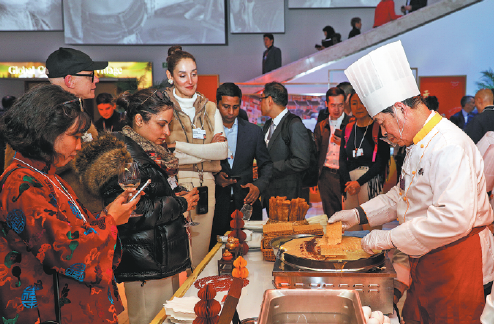
BERN, Switzerland -- Chinese Vice-Premier Ding Xuexiang met with Swiss officials on Monday and Tuesday, and the two sides agreed to further promote their innovative strategic partnership.
Ding, also a member of the Standing Committee of the Political Bureau of the Communist Party of China Central Committee, met with Karin Keller-Sutter, president of the Swiss Confederation and head of the Federal Department of Finance, and held talks with Guy Parmelin, vice president of the Federal Council and head of the Federal Department of Economic Affairs, Education and Research, on the sidelines of the World Economic Forum (WEF) Annual Meeting 2025.
Ding said that Switzerland is one of the first Western countries to recognize and establish diplomatic relations with the People's Republic of China, adding that their bilateral relationship has exemplified mutual respect and win-win cooperation between countries with different social systems, development stages, and sizes.
He recalled Chinese President Xi Jinping's state visit to Switzerland in 2017, during which the two sides reached a series of important consensus, bringing bilateral relations to a new height.
This year marks the 75th anniversary of the establishment of diplomatic ties between China and Switzerland, Ding said, calling on the two sides to implement the important consensus reached by the leaders of the two countries, deepen political mutual trust, continue to carry forward the China-Switzerland cooperation spirit of "equality, innovation and win-win," and push forward the China-Switzerland innovative strategic partnership to continuously break new ground.
Noting that friendly exchanges and mutually beneficial cooperation between China and Switzerland are in line with the fundamental interests of the two peoples and the common expectations of the international community, Ding called for maintaining high-level exchanges, giving play to the role of bilateral dialogue mechanisms, consolidating and developing correct mutual understanding, and supporting each other on issues concerning each other's core interests and major concerns.
He urged joint efforts to strengthen complementarity of advantages, seek mutual benefits, and accelerate negotiations on upgrading the free trade agreement, and strive for substantive results at an early date. "We should strengthen cooperation on innovation, jointly explore and promote the development of life sciences, artificial intelligence and green technology, and foster new growth areas for practical cooperation," Ding said.
The vice-premier also called for deepening financial connectivity and promoting people-to-people exchanges.
He highlighted Switzerland's unique role in international and regional affairs as a permanently neutral country and host to many international organizations. This year marks the 80th anniversary of the United Nations, Ding said, noting China is willing to continue to make good use of existing mechanisms and channels with Switzerland, maintain communication and coordinate positions on multilateral affairs and international and regional hotspot issues, jointly practice genuine multilateralism, and contribute further to building a community with a shared future for mankind.
Keller-Sutter said Switzerland cherishes its friendship with China and is willing to work with China to celebrate the 75th anniversary of diplomatic ties and the Switzerland-China Year of Culture and Tourism, in an effort to push the Switzerland-China innovative strategic partnership to a higher level.
Switzerland and China share the same position on upholding free trade and opposing protectionism, she said, underscoring that the success story of the Switzerland-China free trade agreement shows that mutual benefit can be achieved through openness and cooperation. She added that the Swiss side is willing to strengthen practical cooperation with China and jointly promote economic development and prosperity through upgrading the free trade agreement.
Parmelin said that Switzerland and China have complementary economic advantages and extensive common interests, pointing to great potential for cooperation in innovation, finance, higher education, and vocational training. Switzerland is willing to strengthen communication and coordination with China on multilateral affairs and jointly tackle global challenges, he said, adding that his country is ready to further facilitate people-to-people exchanges with China to enhance bilateral friendship.
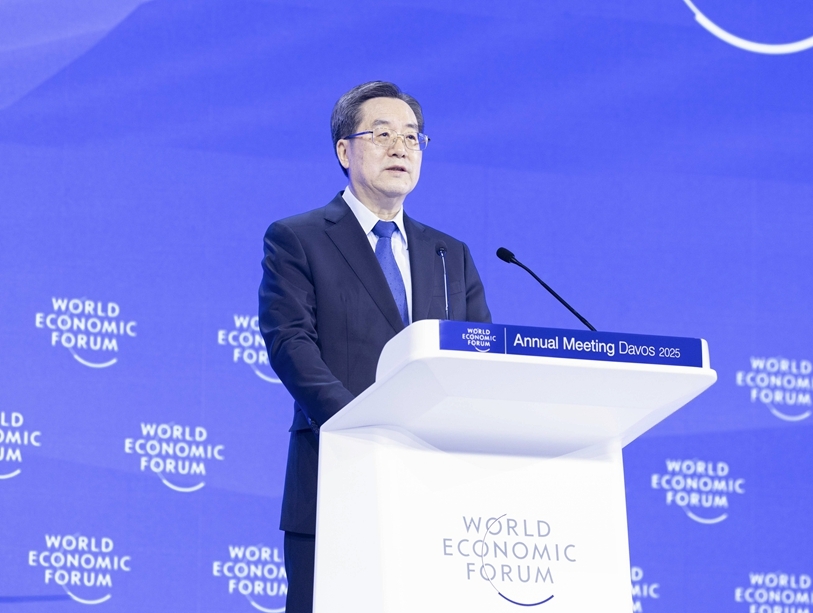
Vice-Premier Ding Xuexiang warned on Tuesday of "horrible" consequences if the world becomes divided and emphasized the need for the international community to work together to oppose a Cold War mentality and zero-sum game and build a more equitable international order.
Ding made the remarks in response to a question from Klaus Schwab, founder of the World Economic Forum, about global governance at the WEF Annual Meeting 2025 in Davos, Switzerland.
"If the world becomes divided, it will be difficult for humanity to address common challenges together and the world could relapse into confrontation and even wars," Ding said, adding "No country could remain unaffected".
Ding reaffirmed China's commitment to peace and international cooperation, saying that the country remains a defender and builder of the international order.
China has been a strong advocate of multilateralism and firmly upholds an international system with the United Nations at the core and the international order underpinned by international law, he said.
Vice-Premier Ding Xuexiang has called for the improvement of global governance on Artificial Intelligence to ensure it replicates "Ali Baba's cave" filled with treasure, rather than "Pandora's box" of uncontrollable risks.
Ding made the remarks on Tuesday in response to questions from Klaus Schwab, founder of the World Economic Forum, at the WEF Annual Meeting 2025 in Davos, Switzerland.
Ding highlighted the dual nature of AI, saying that while it has huge potential for development, it also presents serious risks if not carefully managed.
"It's like driving a car on a high-speed highway; if we don't have control over the brakes system, we can't confidently press the accelerator," Ding said, adding AI development must balance safety with progress.
He warned that if global competition in AI continues without order or regulation, it could lead to a "grey rhino" scenario – a visible but ignored risk with serious consequences.
Ding stressed the need for responsible governance to ensure that AI brings benefits, not disaster, and urged global cooperation under the United Nations to create strong governance frameworks to ensure AI benefits humanity while avoiding risks.
The benefits of technology should be shared, he said. "We aim to bridge the tech gap and avoid allowing innovation to become a game for the rich countries alone."
Ding said China is developing AI to transform the economy for the benefit of the Chinese people, and it will not blindly follow other nations or engage in excessive competition.
China will collaborate with countries from around the world in AI development, especially when it comes to sharing new technologies with countries in the Global South, he added.
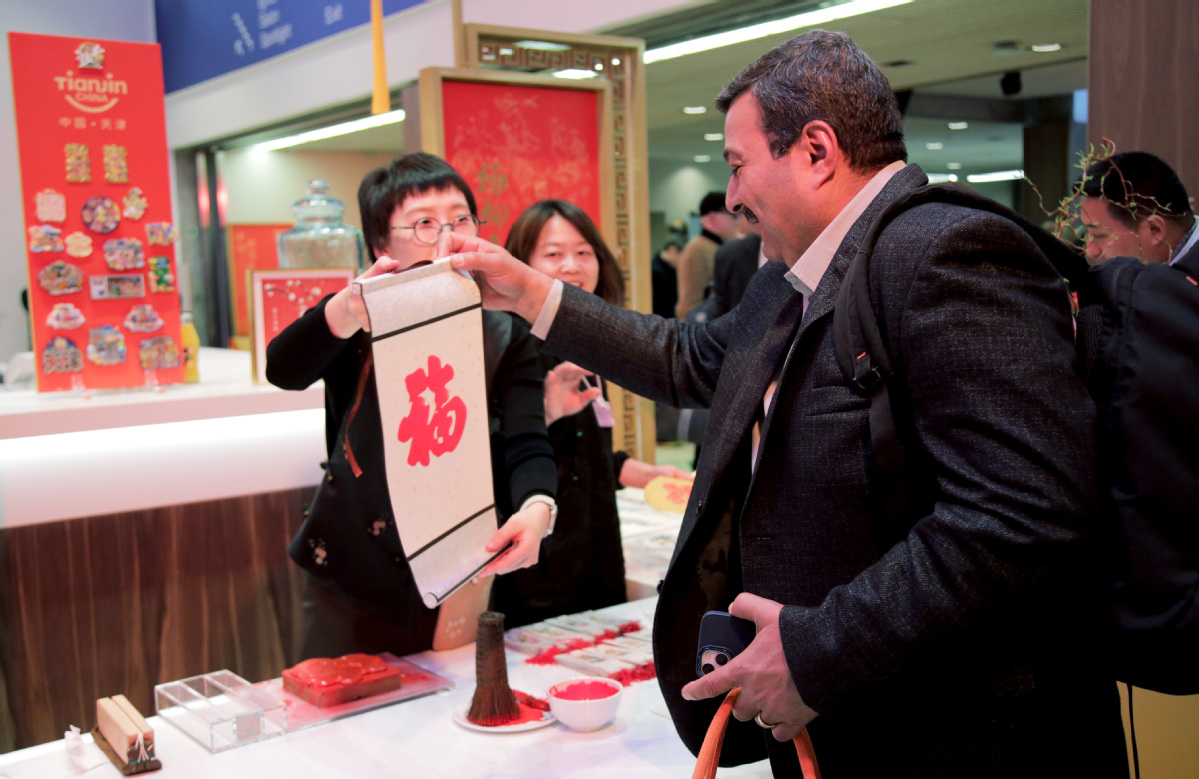
The Tianjin municipal government hosted the "Tianjin Night" reception at the hall of the World Economic Forum Conference Center in Davos, Switzerland, on the evening of Jan 21, 2025. Guests attending the World Economic Forum Annual Meeting 2025 attended the event to welcome the upcoming Chinese New Year.
Tianjin is the host city of this year's annual meeting of the New Champions of the World Economic Forum, also known as the Summer Davos Forum, which will be held in late June, and its preparation is underway smoothly.
The "Tianjin Night" event was held on the date of "Little New Year" or xiaonian in northern China. The decorations for the event venue were full of Chinese charm, and folk music was played. Tianjin snack tasting and handcraft-making were provided.
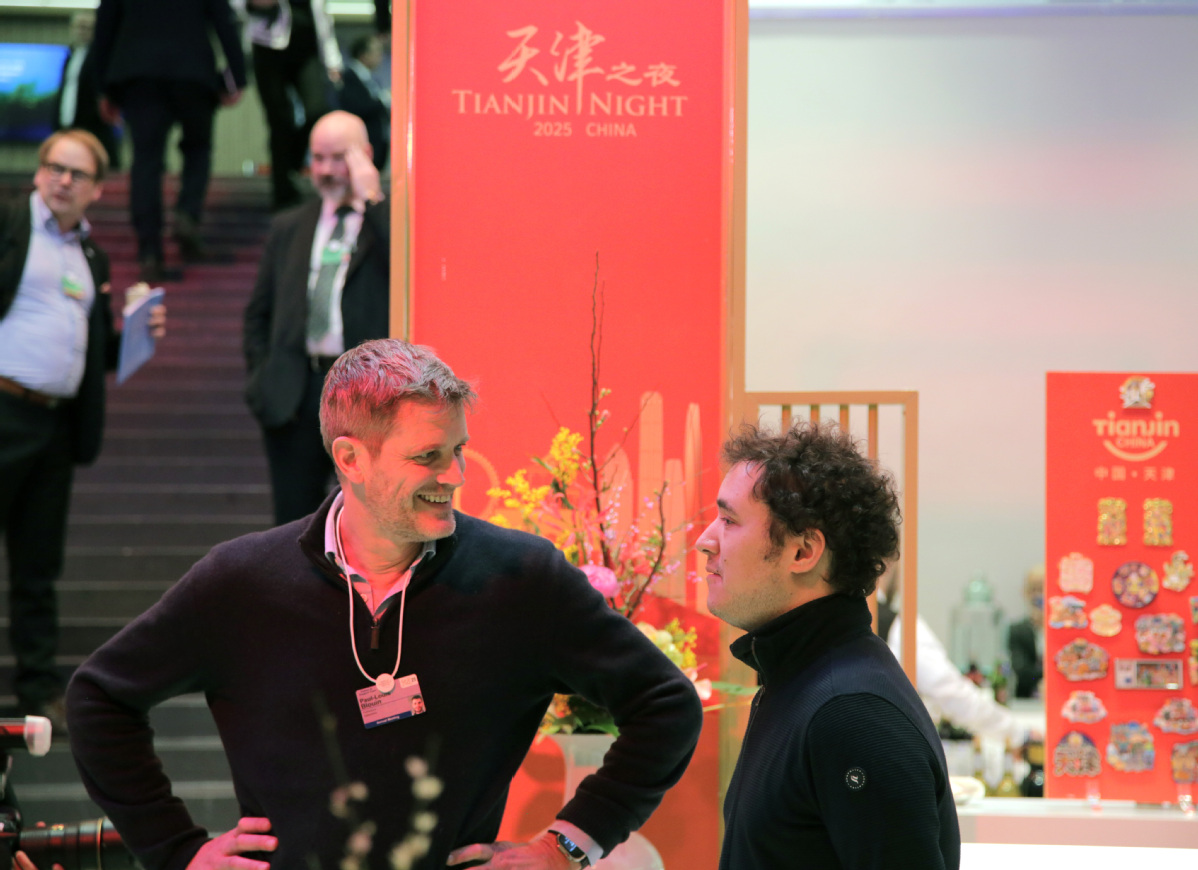


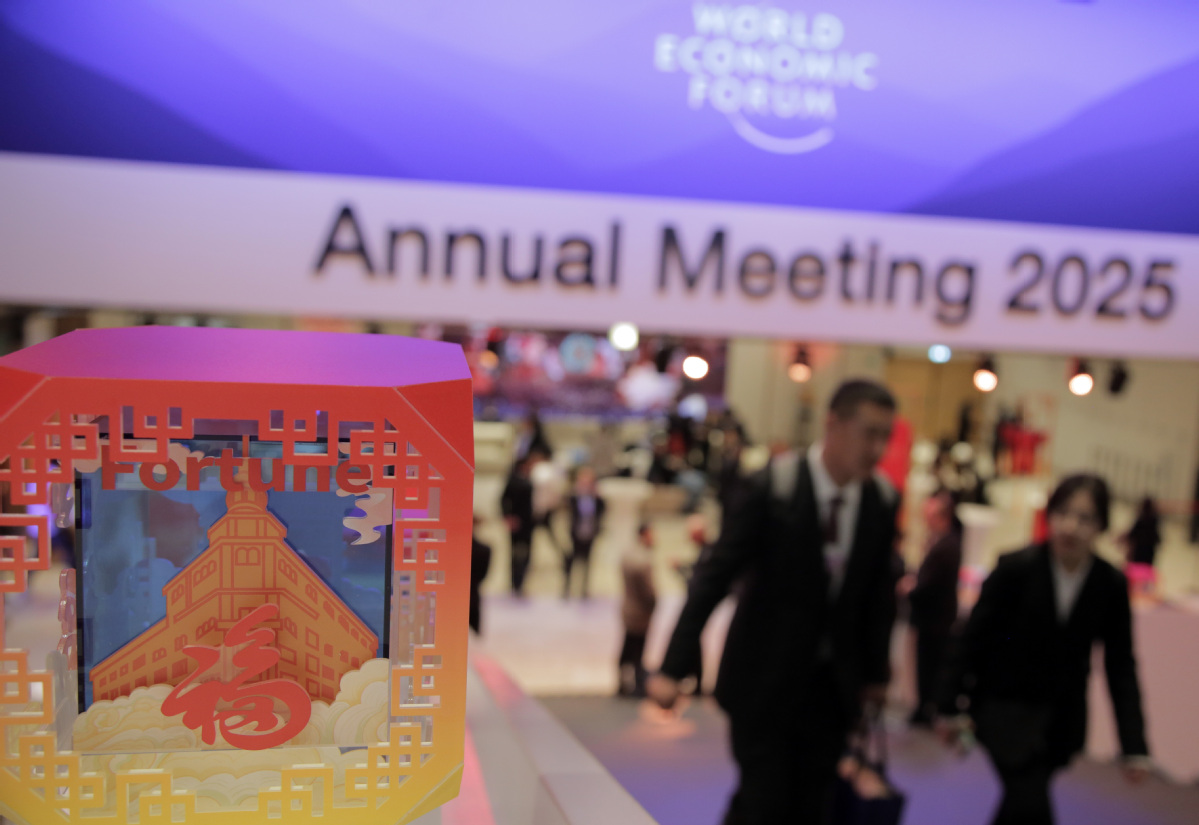
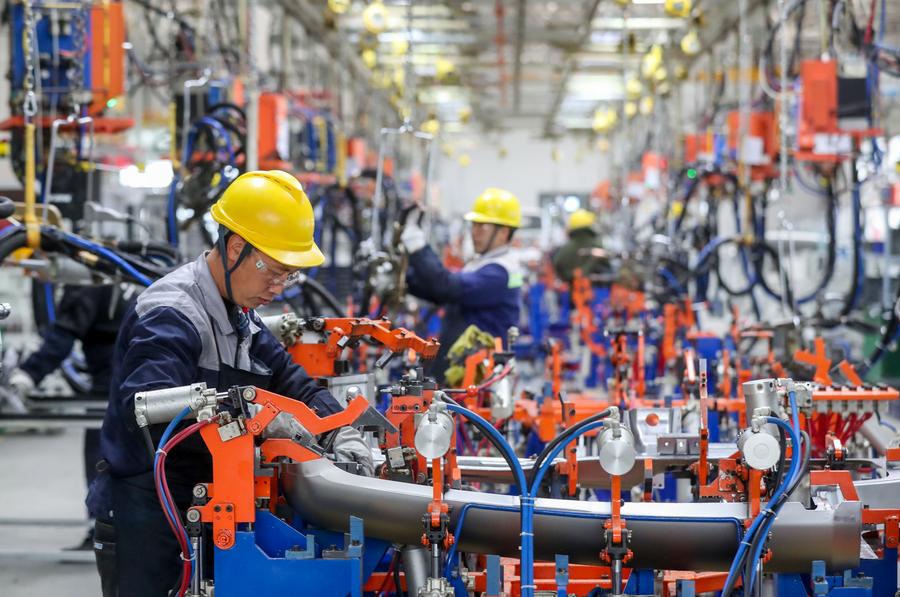
DAVOS, Switzerland -- Measured by market size and growth rate, China is still full of opportunities and worthy of investment by global companies, said Joe Ngai, chairman of McKinsey & Company in Greater China, a worldwide management consulting firm.
Ngai reiterated his confidence in the fundamentals of the Chinese economy in an interview with Xinhua on the sidelines of the ongoing World Economic Forum (WEF) annual meeting in the Swiss Alpine town of Davos.
Judging from the economic data of the third and fourth quarters in 2024, China's economic growth has stabilized and will continue this trend in 2025, he said, adding that he is confident in the prospect of the Chinese economy in the medium and long term.
China's economy expanded 5 percent year-on-year in 2024, reaching its 2024 growth target despite growing challenges from domestic and global fronts.
In comparison with lower economic growth in major global economies such as Japan and the EU over the past two or three decades, Ngai said, "China's current economic growth rate can give companies enough room for development."
Amid geopolitical tensions and the backlash against globalization, Ngai predicted that the uncertainty facing the global economy may reach a historical high. For the global economy, how to find new growth frontiers has become a challenge that needs to be solved urgently.
While highlighting the new possibilities for economic growth through emerging technologies like artificial intelligence (AI), he also voiced concern about the risks posed by uneven development and the "winner-takes-all" phenomenon.
Over the next decade, AI will profoundly change the way businesses operate, he said. Some companies have already begun using AI to improve efficiency and reduce costs, but such companies represent less than 10 percent of the total.
Ngai said that AI applications in business are still in the early stages. To fully leverage the potential of AI, companies must also make adjustments to their organizational structure and internal culture to adapt to the intelligent age.
On the theme of "Collaboration for the Intelligent Age", the 2025 WEF annual meeting brings together nearly 3,000 participants from various regions and industries to discuss issues across five pivotal areas: Reimagining Growth, Industries in the Intelligent Age, Investing in People, Safeguarding the Planet, and Rebuilding Trust.
DAVOS, Switzerland -- China continues to be a steadfast force in advancing multilateral economic and trade cooperation worldwide, said Patrick Tsang, chief executive officer of Deloitte China, emphasizing the country's significant contributions to global trade, investment, and the green and digital economy.
"China has consistently unleashed domestic demand and created opportunities for global goods and services," Tsang noted in an interview during the annual meeting of the World Economic Forum (WEF), which began on Monday.
He highlighted the evolution of China's imports, which now encompass a wide range of products, from cosmetics and health items to virtually every category of goods. Furthermore, China has been actively attracting foreign investment in high-tech sectors while boosting outbound investments to enhance global capital flows and economic development.
Tsang pointed out that China's high-tech investments abroad increasingly target sectors such as new energy, new materials, and high-end equipment manufacturing.
China's gross domestic product (GDP) grew by five percent year-on-year in 2024, achieving the government's annual target, according to the National Bureau of Statistics. Reflecting confidence in China's economic prospects, the International Monetary Fund recently raised its growth projections for the country for 2025 and 2026 in its latest World Economic Outlook update.
Tsang also commended China's efforts to promote green industries and foster global technological innovation. He noted that the rapid development and industrialization of China's green technologies have reduced global technology costs, enabling more nations to adopt sustainable economic models affordably.
Amid rising geopolitical tensions, trade protectionism, and global economic uncertainties, Tsang lauded China's commitment to high-level opening up. "As the world's second-largest economy, China's insistence on advancing high-level opening up not only supports its high-quality economic development but also positively influences the global economic structure," he said.
China has completely lifted restrictions on foreign investment in its manufacturing sector and continues to steadily open its service industries, including healthcare, telecommunications, and education. For instance, wholly foreign-owned hospitals in China have achieved significant milestones.
The opening of China's services sector "not only enriches service offerings for Chinese people but also creates more business opportunities for global companies," Tsang said.
In 2024, China introduced its first national-level negative list for cross-border trade in services, establishing systematic measures to ensure the secure and efficient flow of talent, funds, technology, and data. The country has also implemented initiatives to facilitate personnel exchanges, such as visa policies. To date, China has full visa exemption agreements with 25 countries, unilateral visa exemption policies with 38 countries, and transit visa exemptions for 54 countries.
The surge in "China Travel" demonstrates the country's dedication to expanding high-level opening to the world, Tsang said.
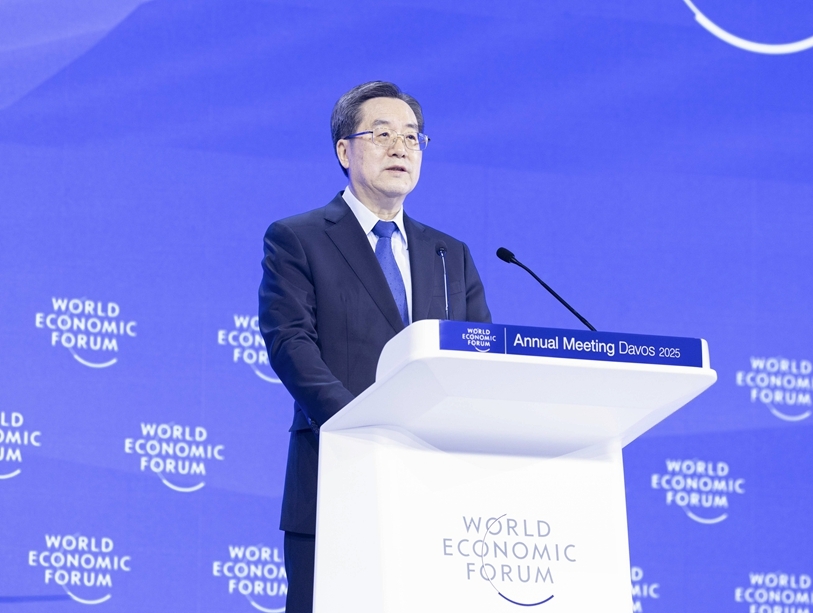
DAVOS, Switzerland -- Chinese Vice-Premier Ding Xuexiang on Tuesday delivered a special address at the World Economic Forum Annual Meeting 2025 in Davos, Switzerland.
The following is the full text of the speech entitled "Keeping to the Right Path of Multilateralism and Promoting Open and Inclusive Development":
Special Address by H.E. Ding Xuexiang
Vice-Premier of the State Council of the People's Republic of China
At the World Economic Forum Annual Meeting 2025 Davos, January 21, 2025
Professor Klaus Schwab,
Distinguished Guests,
Ladies and Gentlemen,
Friends,
It gives me great pleasure to come to beautiful Davos for the World Economic Forum (WEF) Annual Meeting, an important platform for discussing global economic issues and a vanguard for promoting international exchanges and cooperation. This small town is attractive not only for its picturesque landscape, but also for inspiring new ideas and facilitating common progress.
Eight years ago, it was here in Davos that Chinese President Xi Jinping delivered the important speech in which he pondered the question of our times - "what has gone wrong with the world, and what should we do about it" - and sent a resounding message that China will support economic globalization, uphold and practice multilateralism, and join the effort to make the world a better place. The speech, as Professor Schwab concluded, "brought us some sunshine." Upon deep reflection, President Xi pointed out that "any attempt to channel the waters in the ocean back into isolated lakes and creeks is simply not possible," and that "pursuing protectionism is like locking oneself in a dark room. While wind and rain may be kept outside, that dark room will also block light and air." I had the privilege of listening to that speech in the audience, and it is still fresh in my memory. Since then, President Xi had offered clear answers twice at the WEF to the questions of how to improve global governance and build a community with a shared future for mankind, which provided important guidance to the international community.
As we meet, transformation not seen in a century is accelerating across the world. With imminent tariff wars and trade wars, an ongoing tug of war between the forces for and against economic globalization, and intense rivalry between multilateralism and unilateralism, global governance is undergoing profound adjustments. Human society has once again come to a critical crossroads, hoping that the sun will break through clouds and mists to light up the way forward. It is time to recall President Xi's important speech. We should firm up confidence, uphold solidarity and cooperation, and forge ahead hand in hand despite high winds and choppy waters to build a community with a shared future for mankind. We should provide more stability and certainty for the world, and build a just world of common development. Here, I wish to share a few observations.
First, we need to jointly promote a universally beneficial and inclusive economic globalization. Economic globalization is an inherent requirement for the development of productive forces, and an inevitable result of technological advancement. Indeed, it is an overwhelming trend of history. Over the years, despite some headwinds and setbacks, economic globalization has demonstrated strong resilience and dynamism. According to WTO statistics, the total volume of global trade has grown by an average of 5.8 percent per year since 1995, and reached 30.4 trillion U.S. dollars in 2023. Between 1995 and 2022, the share of middle- and low-income countries in global export rose from 16 percent to 32 percent. And developed countries did not lose out from this. Their growth rates and the well-being of their peoples have also been effectively boosted. Economic globalization is not a "you-lose-I-win" zero-sum game, but a universally beneficial process where all can benefit and win together.
Admittedly, economic globalization will bring some tensions and disagreements on distribution. These issues can only be resolved in the process of promoting economic globalization. Protectionism leads nowhere. Trade war has no winners. We must seize all opportunities to steer economic globalization in the right direction, tackle the development challenges with universal benefit, and pool strengths with inclusive cooperation, so as to usher in a new phase of economic globalization that is more dynamic, more inclusive and more sustainable. I believe that we have the wisdom and capability needed to find a win-win and all-win solution, one that is based on mutually beneficial cooperation, through communication and coordination. We should not only make the pie of economic globalization bigger, but also distribute it better.
Second, we need to jointly uphold and practice true multilateralism. Multilateralism is the right way to maintain world peace and promote human progress. It is the "golden key" to solving the difficulties and challenges facing this world. International affairs should be decided by all through discussion, and the future of the world should be determined by all countries together. This is a consensus shared by the international community. We must hold high the banner of multilateralism, pursue the vision of global governance featuring extensive consultation and joint contribution for shared benefit, and ensure equal rights, equal opportunities and equal rules for all countries in international affairs.
This year marks the 80th anniversary of the founding of the United Nations. We should seize the opportunity to reaffirm our commitment to the purposes and principles of the UN Charter, firmly uphold the UN-centered international system and the international order based on international law, and make global governance more just and equitable. We should firmly uphold the multilateral trading system with WTO at its core, uphold its role as the main channel for rules-making on international trade, and foster an open, inclusive and nondiscriminatory environment for international economic cooperation.
Third, we need to jointly foster new drivers and strengths for global economic development. The theme of this year's annual meeting, "Collaboration for the Intelligent Age," is highly relevant. In today's world, the new round of technological revolution and industrial transformation is deepening, cutting-edge technologies such as artificial intelligence (AI), quantum technology and biomedicine are flourishing, and digital, green and intelligent development is picking up pace. We should seize and make the most of these opportunities to enhance connectivity in the digital age, promote international cooperation on scientific and technological innovation, help countries strengthen emerging and future industries, and accelerate the cultivation and development of new quality productive forces.
In recent years, the North-South divide has become more pronounced, and the gaps in technology, digital access and AI are still widening. We should uphold the principle of harnessing scientific and technological achievements for the benefit of all humanity, help developing countries build AI, intelligent transportation, smart energy and other new infrastructure, and promote the application of information technology in key livelihood sectors, so that more countries can get on board the fast train of digital economic development.
Fourth, we need to jointly tackle major global challenges. Currently, the world is going through transformation and turbulence, and challenges such as climate change, food security and energy security keep cropping up. Only by strengthening global solidarity and pooling global efforts can we overcome the challenges and build a better future together. President Xi Jinping proposed the Global Development Initiative, Global Security Initiative and Global Civilization Initiative, offering important public goods to the world. We should work together to advance these three global initiatives to generate enduring impetus for development, pass on the torch of peace to future generations, and illuminate the splendor of civilizations, thereby gathering formidable strength to overcome difficulties and challenges.
Green transition is a prevailing trend of global development and the fundamental solution to climate change. The international community should work together to accelerate the energy transition in an equitable, orderly and just manner, keep the new energy industrial chain stable, and promote green products and technologies. We must follow a consistent approach in addressing climate change, and improve the consistency of environmental and climate policies and economic and trade policies, so as to prevent economic and trade frictions from impeding the process of green transition, and avoid erecting green barriers that could disrupt normal economic and trade cooperation.
Security and development complement and reinforce each other. At present, some international hotspot issues and conflicts are dragging on and having a serious impact on global peace and stability. We should promote security and peace through cooperation and resolve disputes and differences through dialogue. It is essential that we follow a new path to security that chooses dialogue and partnership over confrontation and alliance. We should support the UN and its Security Council in playing a bigger role, and support all efforts conducive to the peaceful settlement of crises.
Ladies and Gentlemen,
Friends,
China is a key engine for global economic development. Whenever world economic issues are discussed at Davos, a lot of attention would be on China. Here taking this opportunity, I would like to share with you some of the major trends that characterize the Chinese economy.
The first major trend is that high-quality development is making solid progress. This is a big highlight of the Chinese economy. Over the past year, the Chinese economy made steady progress while maintaining overall stability. China's GDP grew by five percent, one of the fastest among major economies. In response to the headwinds and challenges confronting China's economy, we stepped up countercyclical measures, and in particular intensified efforts to introduce a package of incremental policies that effectively boosted the real estate and stock markets, improved market expectations and restored public confidence. As a result, the economy has rebounded and turned for the better.
The headwinds encountered by the Chinese economy are due to both the external environment and temporary pains brought by our own economic restructuring. We have persistently promoted high-quality development. New business sectors, forms and models have kept emerging. This has played an important role in overcoming economic difficulties. During my inspection tours to different parts of China last year, I saw the evident progress in the transition from traditional growth drivers to new ones; I saw emerging and future industries booming and new quality productive forces taking shape at a faster pace. All the businesses I visited - from private companies to foreign-invested ones, and from traditional manufacturing to digital firms - have great confidence in future development.
This year, China will further intensify macro policies, and adopt a more proactive fiscal policy and an appropriately accommodative monetary policy. We will vigorously boost consumption, improve investment performance, facilitate the integrated development of scientific and technological innovation and industrial innovation, promote the sound and stable development of the capital market, stabilize the real estate market, and effectively prevent and defuse local government debt risks, so as to effectively pursue higher-quality economic growth and appropriately increase economic output. China's stable and sound economic development will inject strong and sustained impetus to global economic development.
The second major trend is that green and low-carbon transition is accelerating across the board. This is a salient feature of the Chinese economy. China is taking concrete actions to peak carbon dioxide emissions by 2030 and achieve carbon neutrality by 2060. Since 2012, China's energy consumption per unit of GDP and carbon emission intensity have dropped by more than 26 percent and 35 percent respectively. And China's renewable energy now accounts for over 35 percent of its total power generation. China has built the world's largest and most complete new energy industrial chain. 70 percent of the photovoltaic components and 60 percent of wind power equipment worldwide come from China. These high-quality production capacity has served as a strong boost to global green development and climate response. China's circular economy enjoys a robust momentum of development. For example, empowered by new material technology, a Chinese enterprise produces one T-shirt with the polyester yarn extracted from eight plastic bottles, and makes one hardshell jacket with 28 plastic bottles. This way, it consumes more than 30 billion plastic bottles every year, which has both ecological and economic benefits.
China's pursuit of green transition is a long-term commitment rather than an act of expediency. No matter how the international landscape may evolve, China's determination and action for proactive climate response will not change. We will make tireless efforts to reduce carbon emissions and mitigate pollution while expanding green transition and promoting economic growth, accelerate the comprehensive transition to green economic and social development, observe the goals and principles of the United National Framework Convention on Climate Change and its Paris Agreement, and make greater contributions to global climate response.
The third major trend is that reform and opening up is moving up to a higher level. This is the source of vitality of the Chinese economy. It is through reform and opening up that China caught up with the times in big strides over the past decades, and in order to break new ground in China's modernization drive, we still count on reform and opening up. In July last year, the Communist Party of China held the Third Plenary Session of its 20th Central Committee, laying out systematic plans for further deepening reform comprehensively to advance Chinese modernization. More than 300 important reform measures were introduced at the meeting, and these reform tasks shall be completed by 2029, the year marking the 80th anniversary of the founding of the People's Republic of China. We will build a high-standard socialist market economy, foster a fairer and more dynamic market environment, and make resource allocation as efficient and productive as possible.
Openness is the hallmark of Chinese modernization. In terms of the access for foreign investment, we set up the China (Shanghai) Pilot Free Trade Zone in 2013 and issued the first negative list for foreign investment. There were 190 items on the list at that time, but now the number has been reduced to 27. Last year, China lifted all restrictions on foreign investment in manufacturing and established a negative-list system for cross-border trade in services. And we have been taking systematic steps to further open important sectors like telecom, the Internet, education, culture and medical services. In terms of foreign trade, we don't seek trade surplus; we want to import more competitive quality products and services to promote balanced trade. China's overall tariff level has been cut to 7.3 percent, a fairly low level in the world, and we give all least developed countries having diplomatic relations with China zero-tariff treatment for 100 percent tariff lines. We have taken the initiative to expand imports and held the China International Import Expo for seven years in a row. China has been the world's second-largest importer for many years now. In terms of business environment, we know issues like China's IPR (intellectual property rights) protection, equal participation in government procurement, cross-border data flow, access to factors of production, qualification approval and standard setting are of great interest to multinationals. In these areas, we are continuously improving relevant institutions and policies. These issues are important to both domestic and foreign-invested enterprises, and our attitude has been clear, that is, to provide equal and fair treatment for all of them. Take government procurement for example, according to relevant laws and regulations, all products made in China enjoy the right of equal participation in government procurement, whether their suppliers are domestic or foreign-invested enterprises. I know in reality, there might be cases where invisible barriers and hidden hurdles stand in the way of both foreign-invested enterprises and domestic ones. On the part of the Chinese government, we sincerely hope to work out these problems with parties concerned. China's door of opening up will not be closed and will only open even wider, and our business environment will only get better. We sincerely welcome more foreign enterprises to invest and do business in China, and achieve greater success in sharing China's opportunities.
Ladies and Gentlemen,
Friends,
China's Spring Festival is just around the corner. As the new year begins, everything takes on a new look. Let's start again from Davos, uphold the right path of multilateralism, promote open and inclusive development, and jointly usher in a better future.
To conclude, I wish the annual meeting a full success.
Thank you.
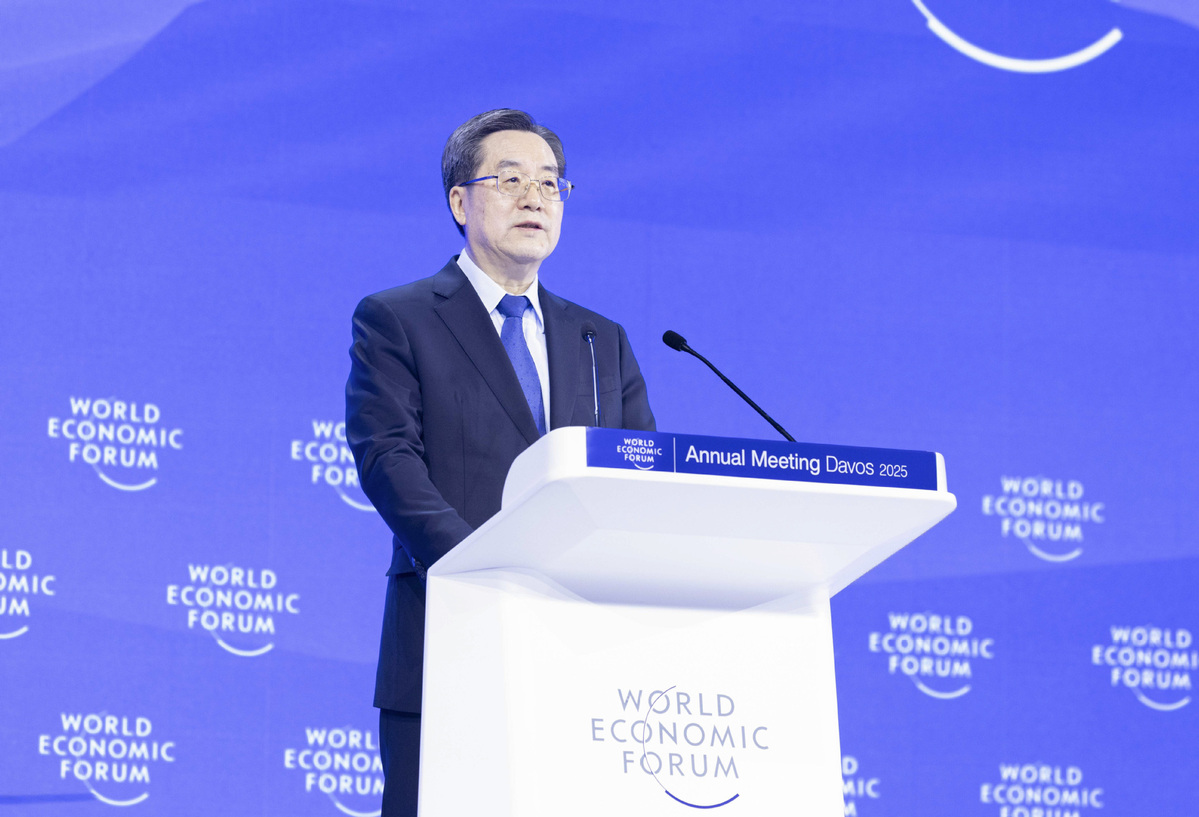
DAVOS, Switzerland -- Chinese Vice-Premier Ding Xuexiang delivered a speech at the World Economic Forum (WEF) Annual Meeting 2025 in Davos, Switzerland, on Tuesday, urging the global community to uphold multilateralism and promote open and inclusive development.
Ding recalled that eight years ago, in the same venue, Chinese President Xi Jinping delivered an important speech, sending a resounding message that China would support economic globalization, uphold and practice multilateralism, and join the effort to make the world a better place, offering clear answers to the questions of how to improve global governance and build a community with a shared future for mankind, and providing important guidance to the international community.
The vice-premier emphasized that the world is undergoing rapid and unprecedented changes, with global governance facing profound adjustments. Citing that human society has once again come to a critical crossroads, he urged the international community to draw inspiration from Xi's vision. "We should firm up confidence, uphold solidarity and cooperation, and forge ahead hand in hand despite high winds and choppy waters to build a community with a shared future for mankind. We should provide more stability and certainty for the world, and build a just world of common development," he said.
Ding outlined four key recommendations. First, he called for the international community to promote universally beneficial and inclusive economic globalization, and try to find a win-win and all-win solution, one that is based on mutually beneficial cooperation, through communication and coordination. "We should not only make the pie of economic globalization bigger, but also distribute it better," he said.
He also called on the global community to uphold and practice true multilateralism, firmly uphold the United Nations-centered international system, pursue the vision of global governance featuring extensive consultation and joint contribution for shared benefit, and ensure equal rights, equal opportunities and equal rules for all countries in international affairs, and foster an open, inclusive and nondiscriminatory environment for international economic cooperation.
Ding continued to say that the international community should jointly foster new drivers and strengths for global economic development, enhance connectivity in the digital age, promote international cooperation on scientific and technological innovation, uphold the principle of harnessing scientific and technological achievements for the benefit of all humanity, and thus let more countries get on board the fast train of digital economic development.
He also called on the international community to jointly tackle major global challenges, such as climate change, food and energy security, and work together to advance the Global Development Initiative, Global Security Initiative and Global Civilization Initiative, thereby gathering formidable strength to overcome difficulties and challenges.
Ding also shared insights into the key trends shaping China's economy. He said that the first major trend is that high-quality development is making solid progress in China, and there is evident progress in the transition from traditional growth drivers to new ones, emerging and future industries are booming and new quality productive forces are taking shape at a faster pace. He noted that this year, China will further intensify macro policies, and adopt a more proactive fiscal policy and an appropriately accommodative monetary policy, so as to effectively pursue higher-quality economic growth and appropriately increase economic output.
The second major trend is that green and low-carbon transition is accelerating across the board, he said. China has built the world's largest and most complete new energy industrial chain. "No matter how the international landscape may evolve, China's determination and action for proactive climate response will not change," he said. "We will make tireless efforts to reduce carbon emissions and mitigate pollution while expanding green transition and promoting economic growth."
He continued to say that the third major trend is that reform and opening up is moving up to a higher level. "We will build a high-standard socialist market economy, foster a fairer and more dynamic market environment, and make resource allocation as efficient and productive as possible," he said, adding that China's door of opening up will not be closed and will only open even wider, and the business environment in China will only get better. He welcomed foreign enterprises to invest and do business in China, and achieve greater success in sharing China's opportunities.
Following his speech, Ding engaged in a discussion with Klaus Schwab, founder and chairman of the WEF Board of Trustees, addressing topics such as the international order and artificial intelligence.
During his time at the forum, Ding held bilateral talks with Serbian President Aleksandar Vucic, Vietnamese Prime Minister Pham Minh Chinh, and World Intellectual Property Organization Director General Daren Tang.
He also participated in discussions with international business leaders from companies including Siemens, ABB Group, and Blackstone. The business leaders spoke highly of China's policies for promoting high-quality development, expressed strong confidence in China's future development, and reaffirmed their intentions to continue investing in China.
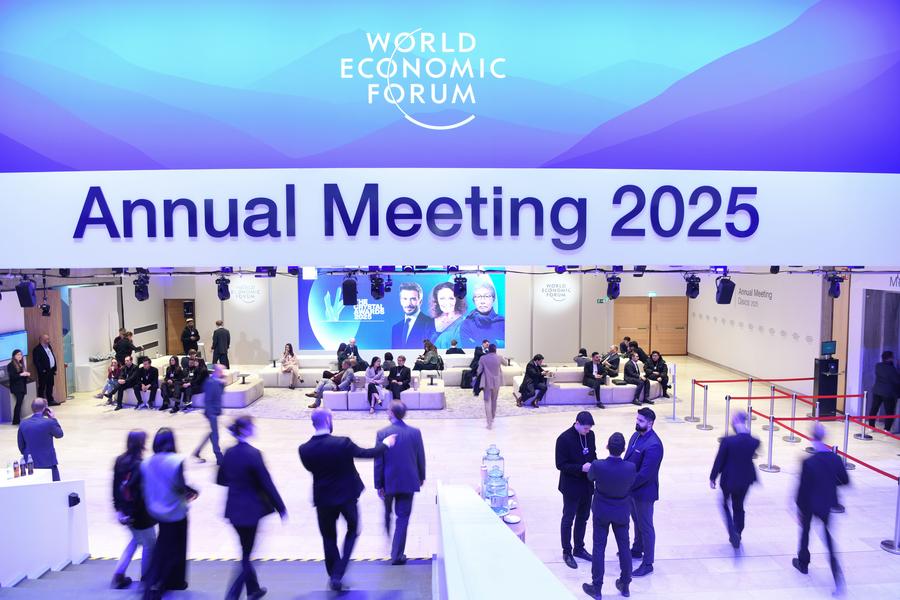
DAVOS, SWITZERLAND -- In addition to significant achievements in AI technology and industry, China has made positive contributions to the global governance of AI, said a senior official of the World Economic Forum (WEF).
On the theme of "Collaboration for the Intelligent Age", the 2025 World Economic Forum Annual Meeting kicked off on Monday in Davos, Switzerland.
In the next decade, AI will have a profound impact on global economic growth, industrial transformation, social livelihood, climate environment and international cooperation, said Chen Liming, chair of Greater China of the WEF, in a written interview with Xinhua.
The rapid application of AI in areas like intelligent robots, intelligent creation, smart education and smart medical care has accelerated industrial upgrades and unlocked widespread innovation opportunities across society, he said.
Noting that China's core AI industry has reached nearly 600 billion yuan ($82 billion), covering key upstream and downstream links such as chips, algorithms, data, platforms and applications, Chen said China also actively engages in global AI governance, collaborating with the WEF and other international organizations to share insights and promote cooperation.
Multilateral cooperation has promoted the initial formation of a global governance framework and policy consensus for AI, he added.
China has put forward The Global AI Governance Initiative, which provides a Chinese solution to global AI governance and emphasizes the principle of giving equal importance to the development and security of AI, Chen said.
"This initiative is not only a positive response to global challenges, but also provides an important reference for the international community on the issue of AI governance," he said.
Following the people-centered, AI-for-good principle, China has made positive progress in balancing the development and security of AI, and in 2023, China issued an interim regulation on the management of generative AI services, marking an important step in promoting the governance of generative AI and providing clear policy guidance for the industry, Chen noted.
"AI brings great potential to our economy, society and the earth. If applied properly, AI can improve efficiency and support resource management, climate change mitigation, disaster response and economic transformation," he said.
However, the global governance of AI still faces many challenges. For example, the Global South is not fully represented in the dialogue on AI governance; as AI technology is increasingly integrated into daily life, it also brings major ethical, privacy and governance challenges, including data privacy, algorithmic bias and transparency issues.
Noting the need for sufficient dialogue and cooperation on data security and AI governance, he stressed balancing AI's rapid advancement with effective oversight to ensure its safety, reliability and fairness. "This requires finding a balance between rapid technological development and effective governance," he said.
To promote responsible AI use, Chen called for strengthened global collaboration, unified industry standards and increased public awareness. "To make AI truly benefit all mankind, a bridge must be built between innovation and ethics," he said.
